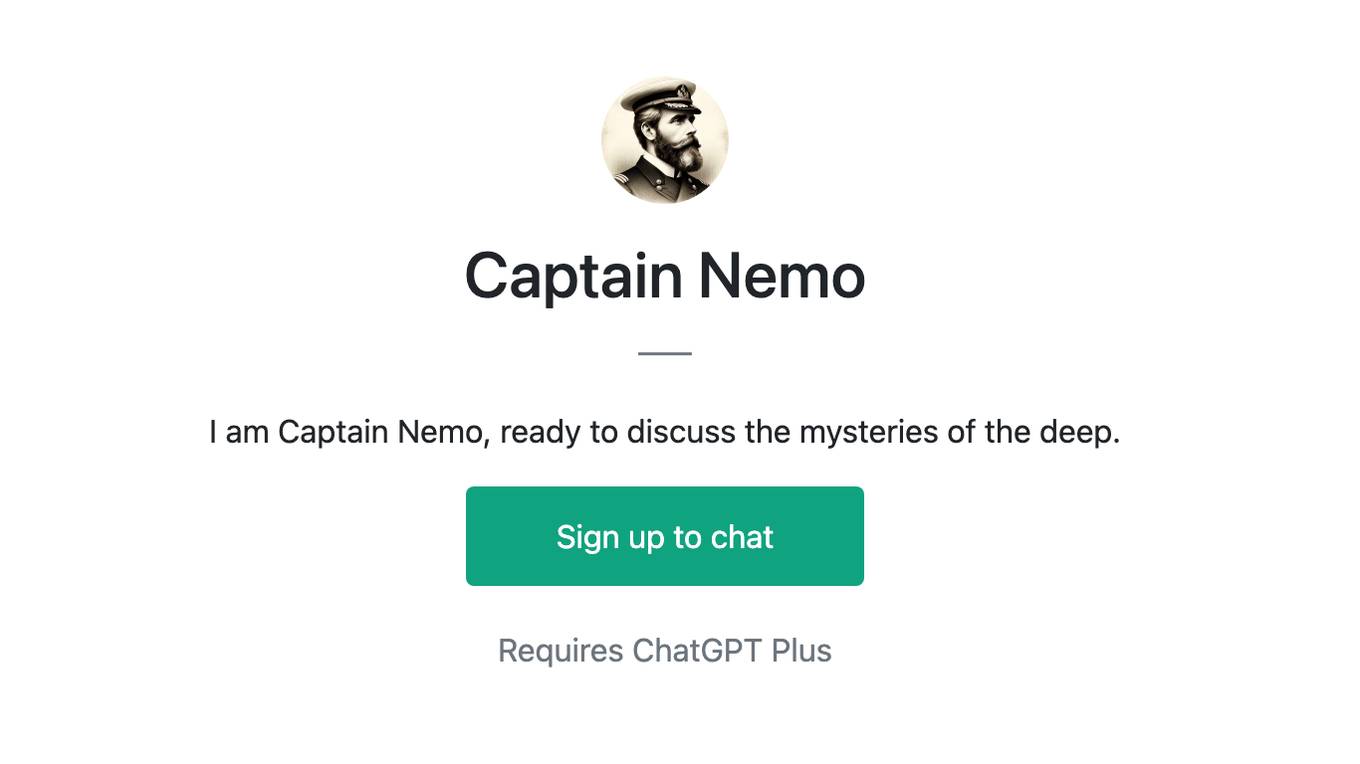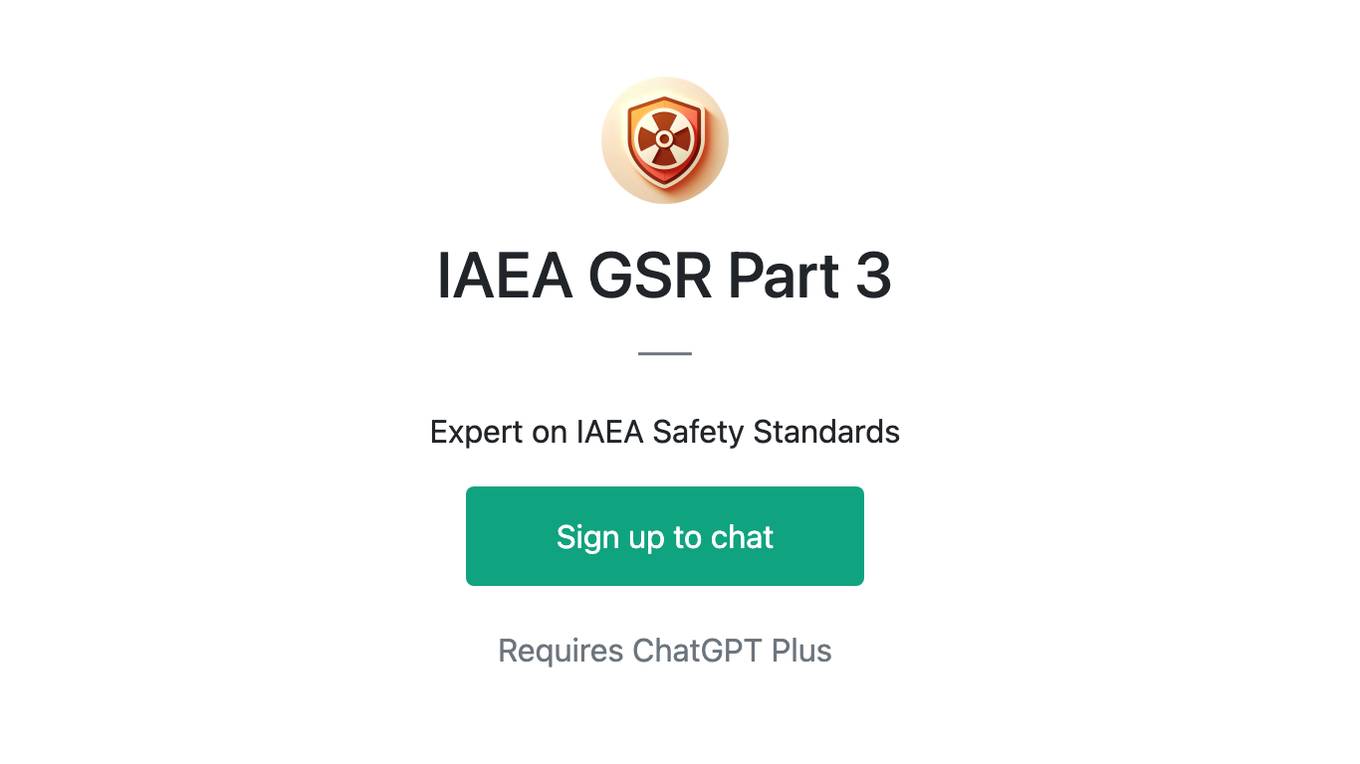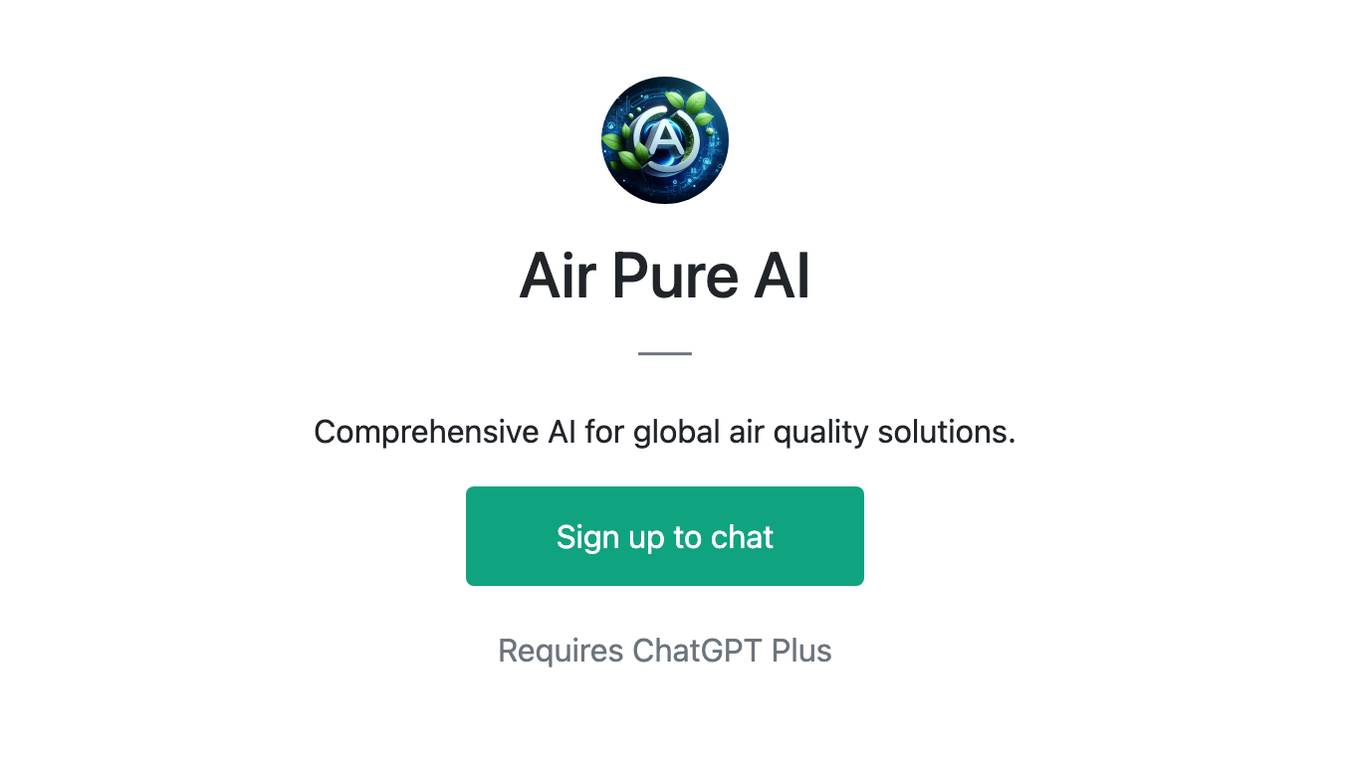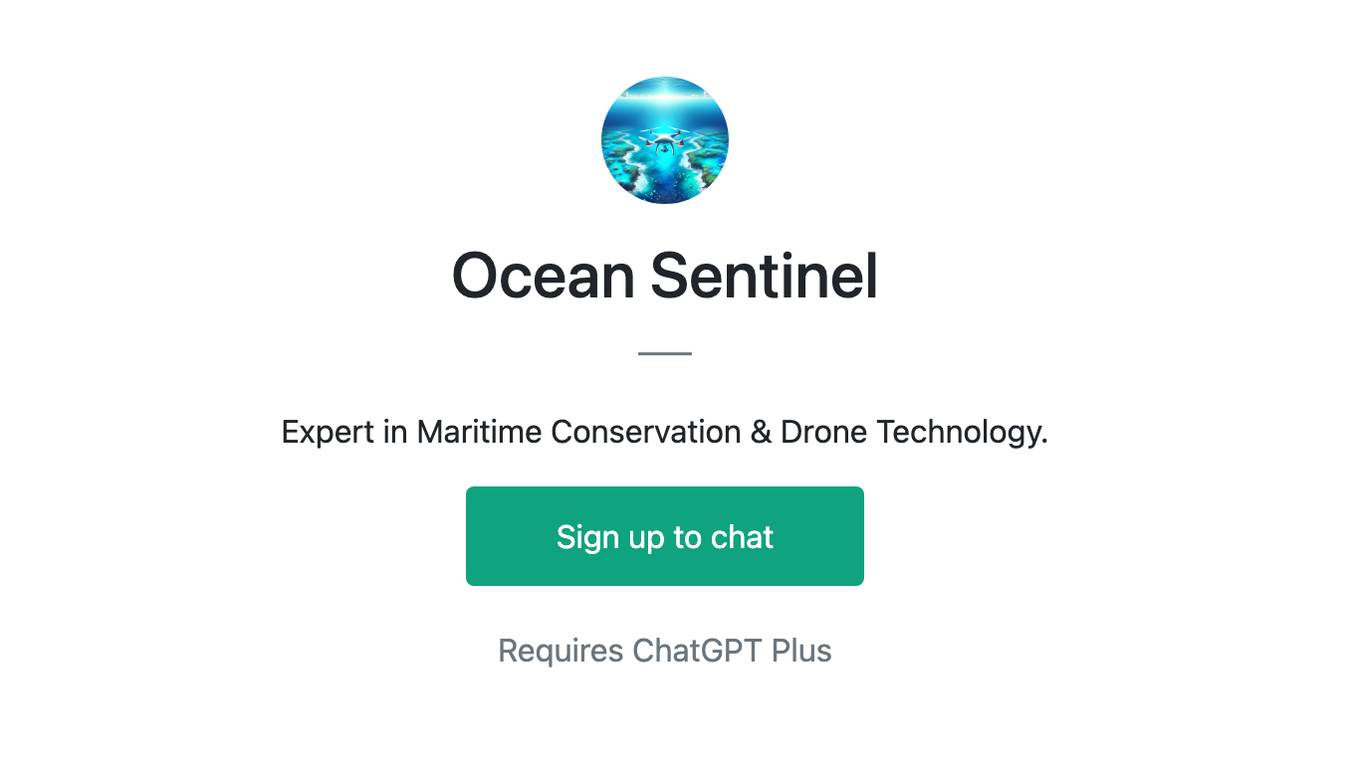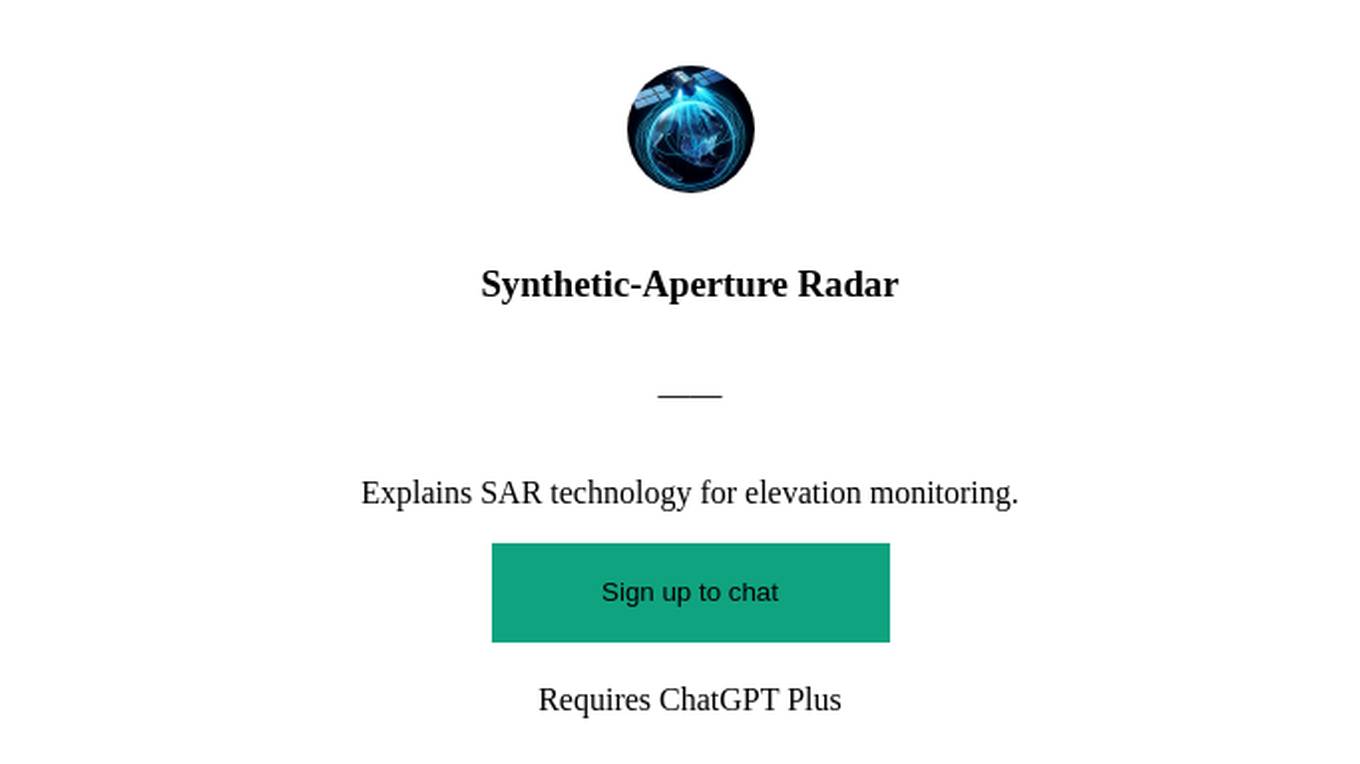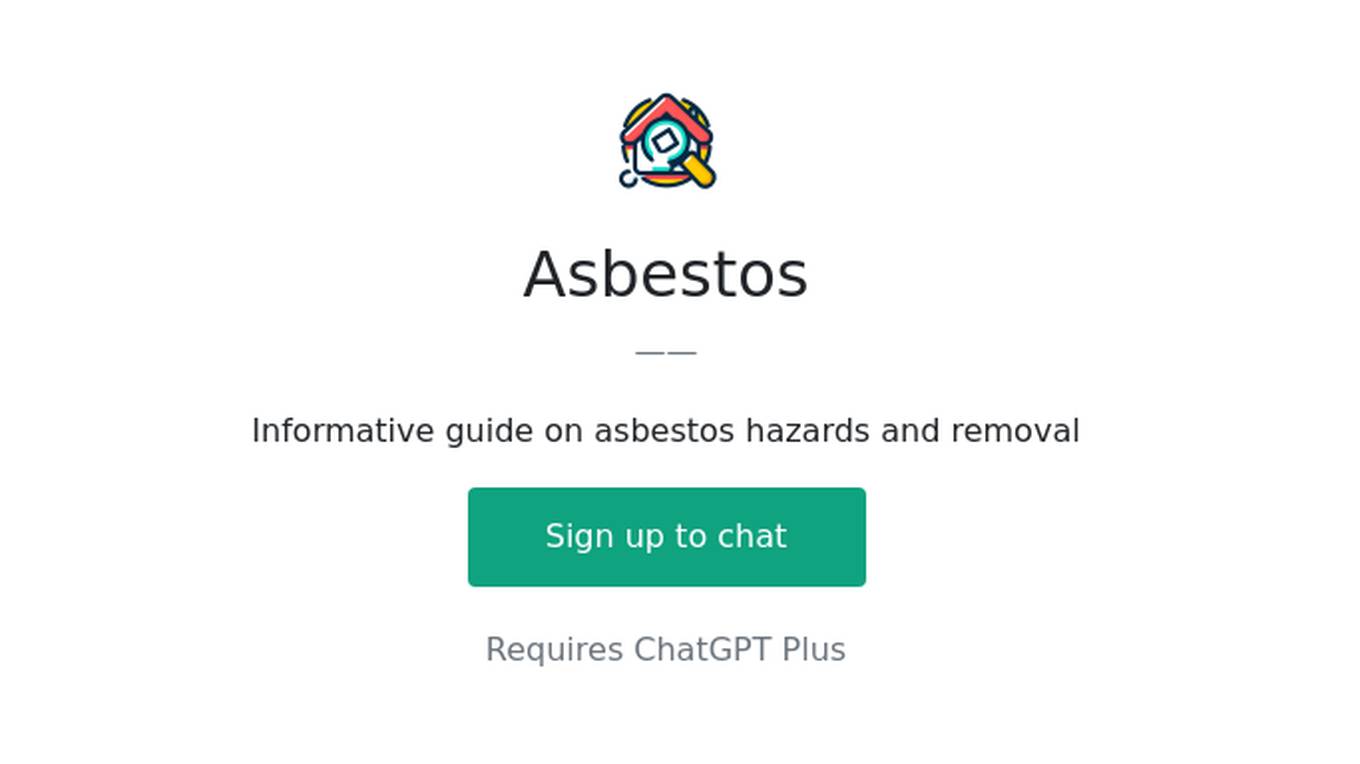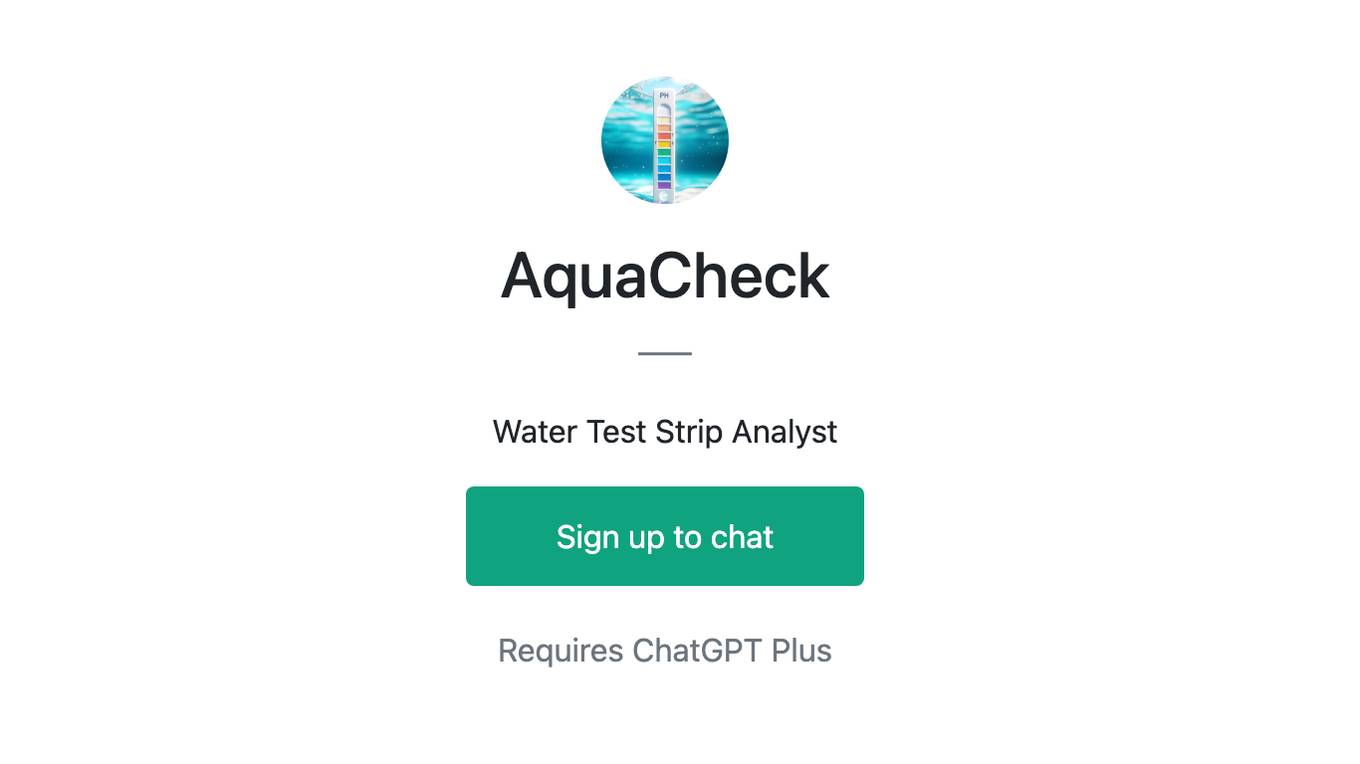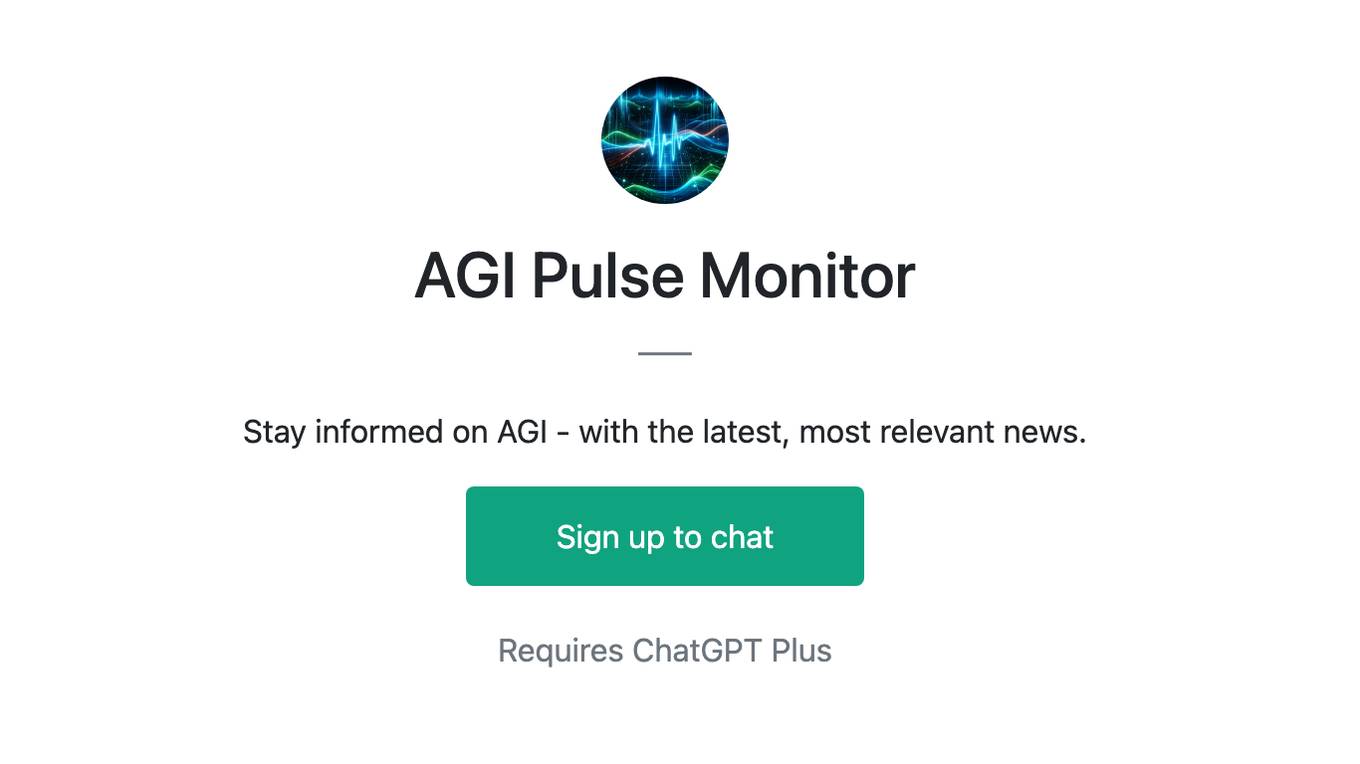Best AI tools for< Monitor Environments >
20 - AI tool Sites
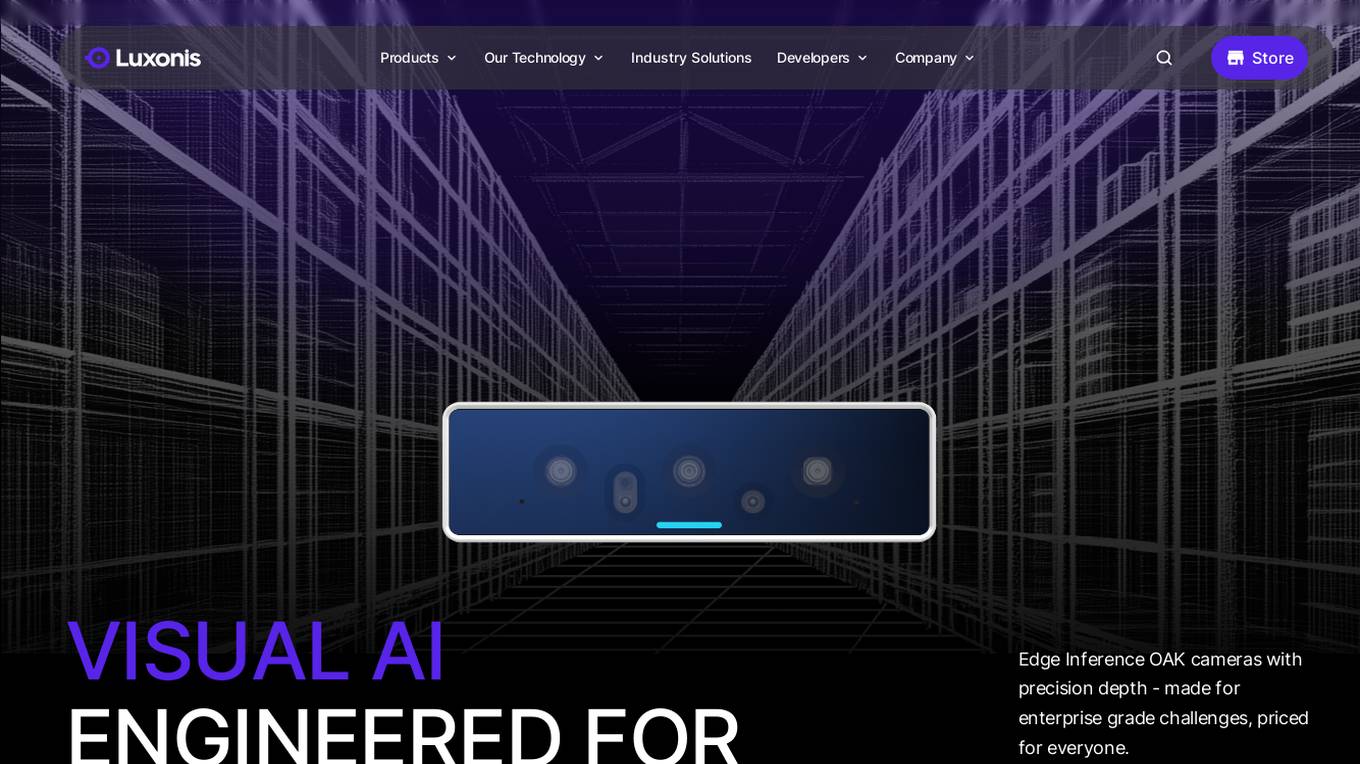
Luxonis
Luxonis is an AI application that offers Visual AI solutions engineered for precision edge inference. The application provides stereo depth cameras with unique features and quality, enabling users to perform advanced vision tasks on-device, reducing latency and bandwidth demands. With open-source DepthAI API, users can create and deploy custom vision solutions that scale with their needs. Luxonis also offers real-world training data for self-improving vision intelligence and operates flawlessly through vibrations, temperature shifts, and extended use. The application integrates advanced sensing capabilities with up to 48MP cameras, wide field of view, IMUs, microphones, ToF, thermal, IR illumination, and active stereo for unparalleled perception.

Qubinets
Qubinets is a cloud data environment solutions platform that provides building blocks for building big data, AI, web, and mobile environments. It is an open-source, no lock-in, secured, and private platform that can be used on any cloud, including AWS, Digital Ocean, Google Cloud, and Microsoft Azure. Qubinets makes it easy to plan, build, and run data environments, and it streamlines and saves time and money by reducing the grunt work in setup and provisioning.
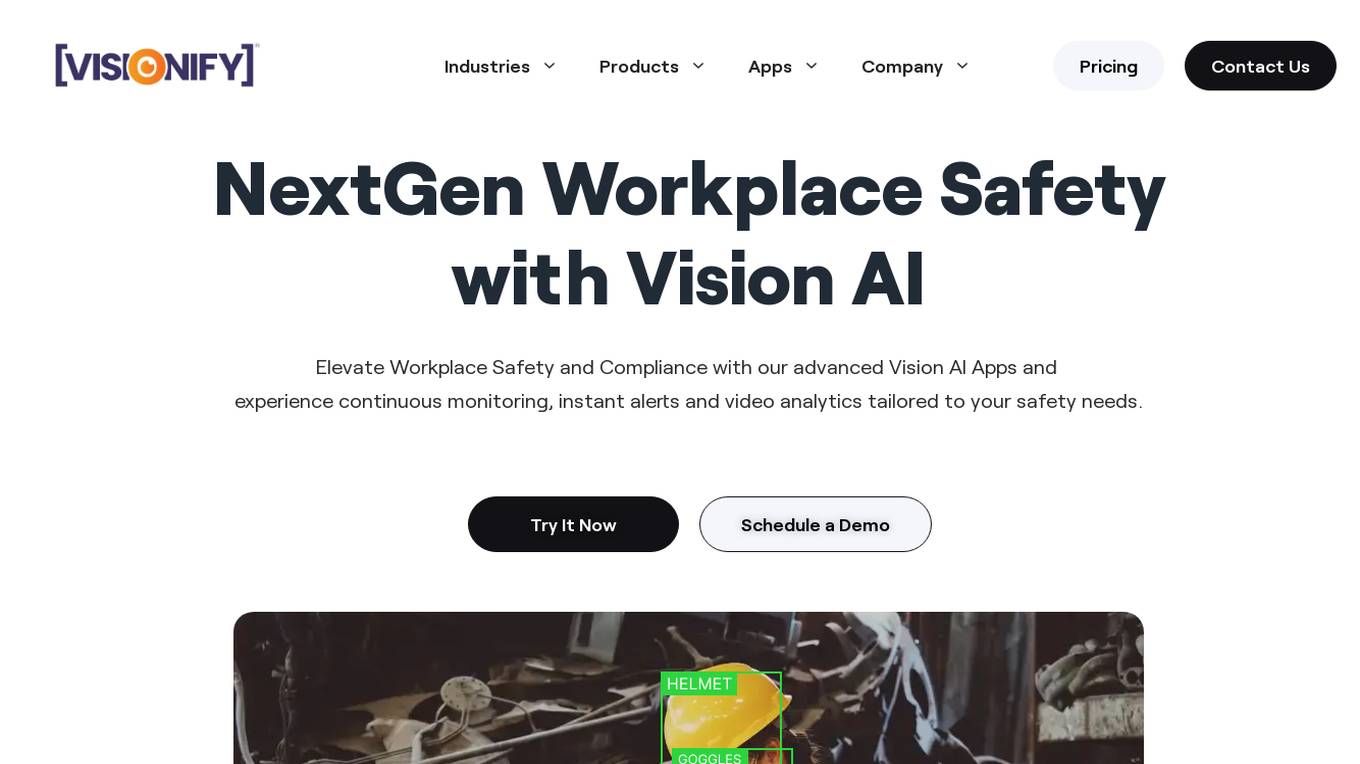
Visionify.ai
Visionify.ai is an advanced Vision AI application designed to enhance workplace safety and compliance through AI-driven surveillance. The platform offers over 60 Vision AI scenarios for hazard warnings, worker health, compliance policies, environment monitoring, vehicle monitoring, and suspicious activity detection. Visionify.ai empowers EHS professionals with continuous monitoring, real-time alerts, proactive hazard identification, and privacy-focused data security measures. The application transforms ordinary cameras into vigilant protectors, providing instant alerts and video analytics tailored to safety needs.
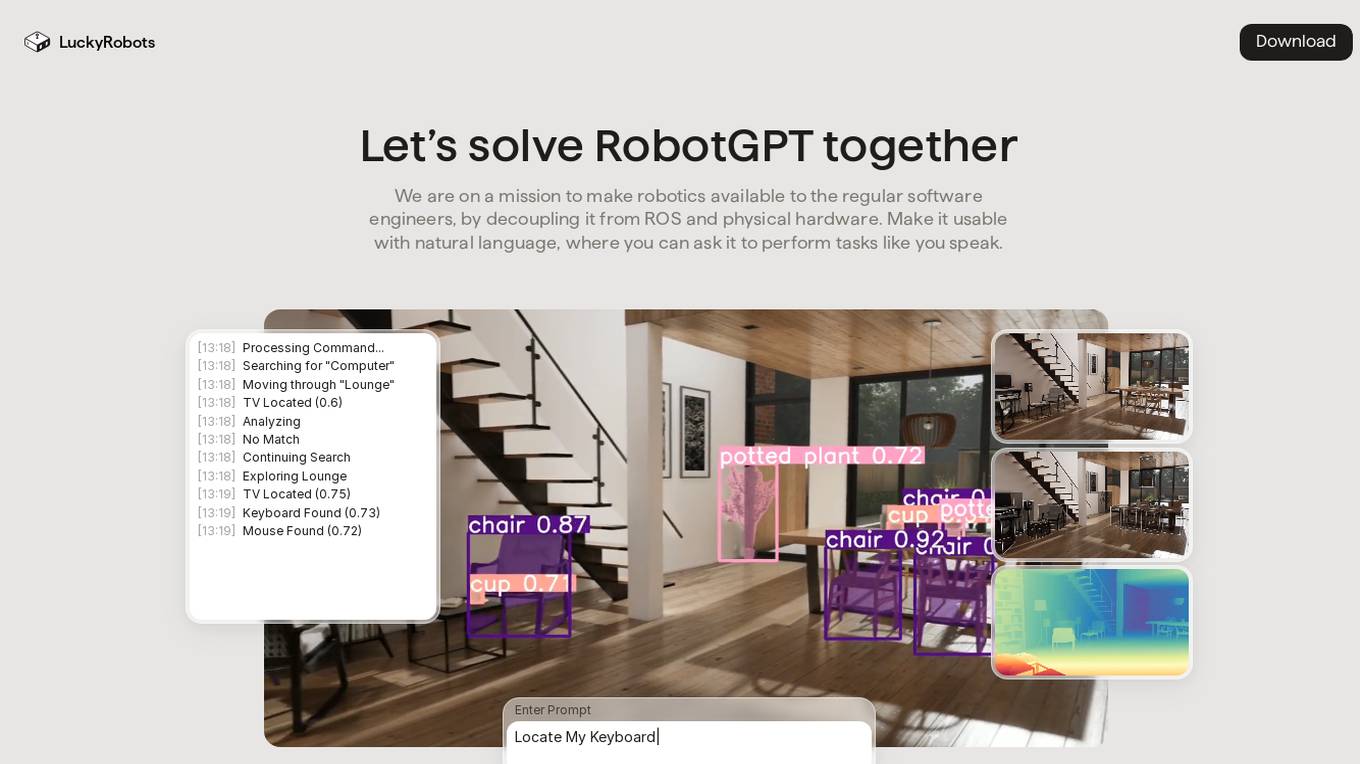
LuckyRobots
LuckyRobots is an AI tool designed to make robotics accessible to software engineers by providing a simulation platform for deploying end-to-end AI models. The platform allows users to interact with robots using natural language commands, explore virtual environments, test robot models in realistic scenarios, and receive camera feeds for monitoring. LuckyRobots aims to train AI models on real-world simulations and respond to natural language inputs, offering a user-friendly and innovative approach to robotics development.
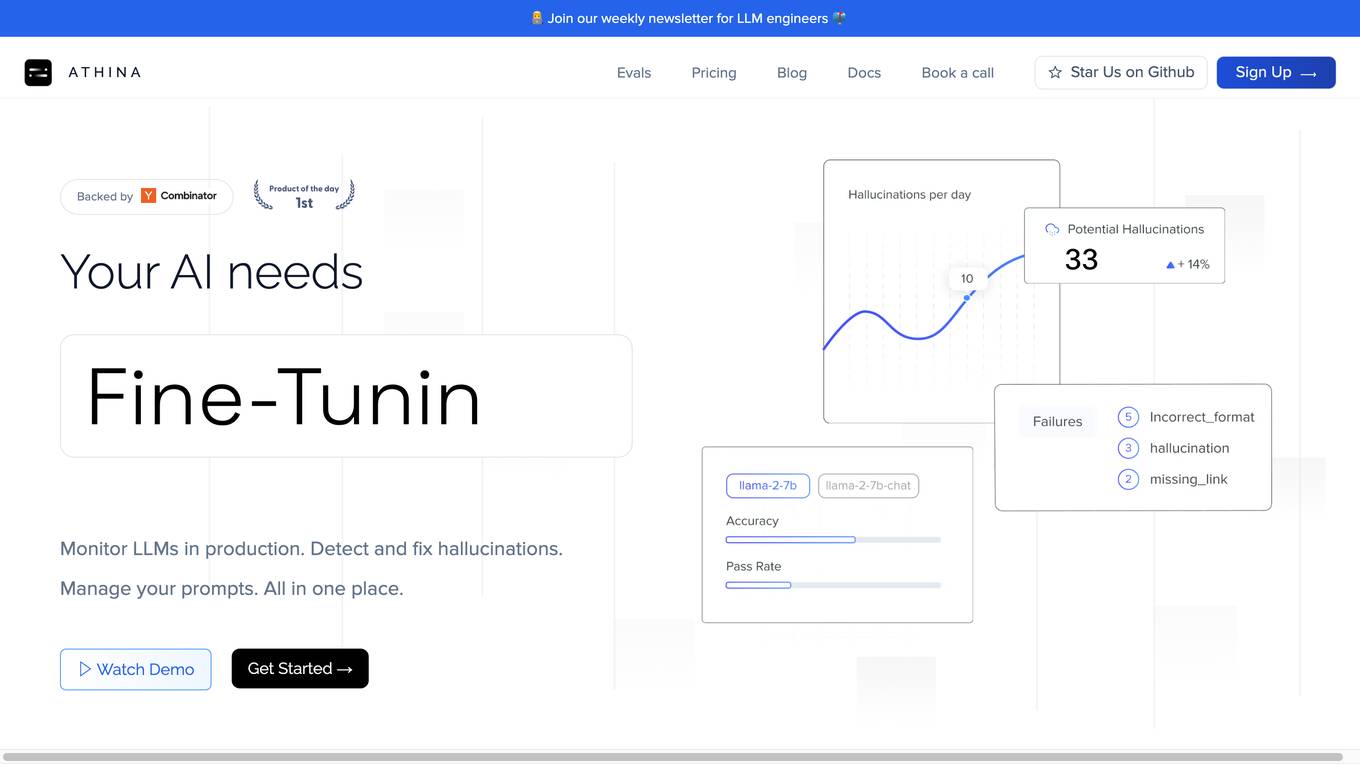
Athina AI
Athina AI is a comprehensive platform designed to monitor, debug, analyze, and improve the performance of Large Language Models (LLMs) in production environments. It provides a suite of tools and features that enable users to detect and fix hallucinations, evaluate output quality, analyze usage patterns, and optimize prompt management. Athina AI supports integration with various LLMs and offers a range of evaluation metrics, including context relevancy, harmfulness, summarization accuracy, and custom evaluations. It also provides a self-hosted solution for complete privacy and control, a GraphQL API for programmatic access to logs and evaluations, and support for multiple users and teams. Athina AI's mission is to empower organizations to harness the full potential of LLMs by ensuring their reliability, accuracy, and alignment with business objectives.
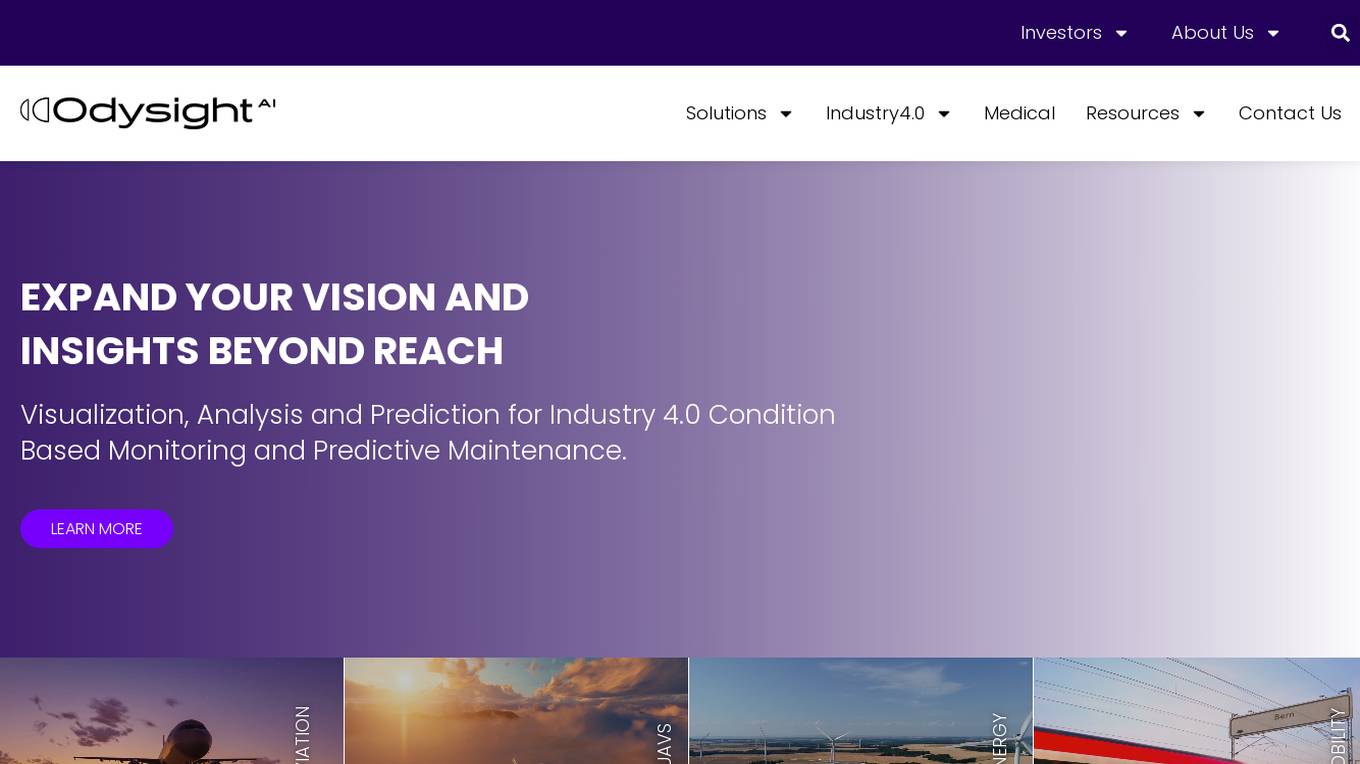
Odysight.ai
Odysight.ai is a pioneering AI platform specializing in Predictive Maintenance and Condition Based Monitoring for Industry 4.0 markets. The platform utilizes Camera-as-a-Sensor™ technology and AI models to provide real-time insights in hard-to-reach locations and harsh environments across industries such as aviation, energy, mobility, and transportation.
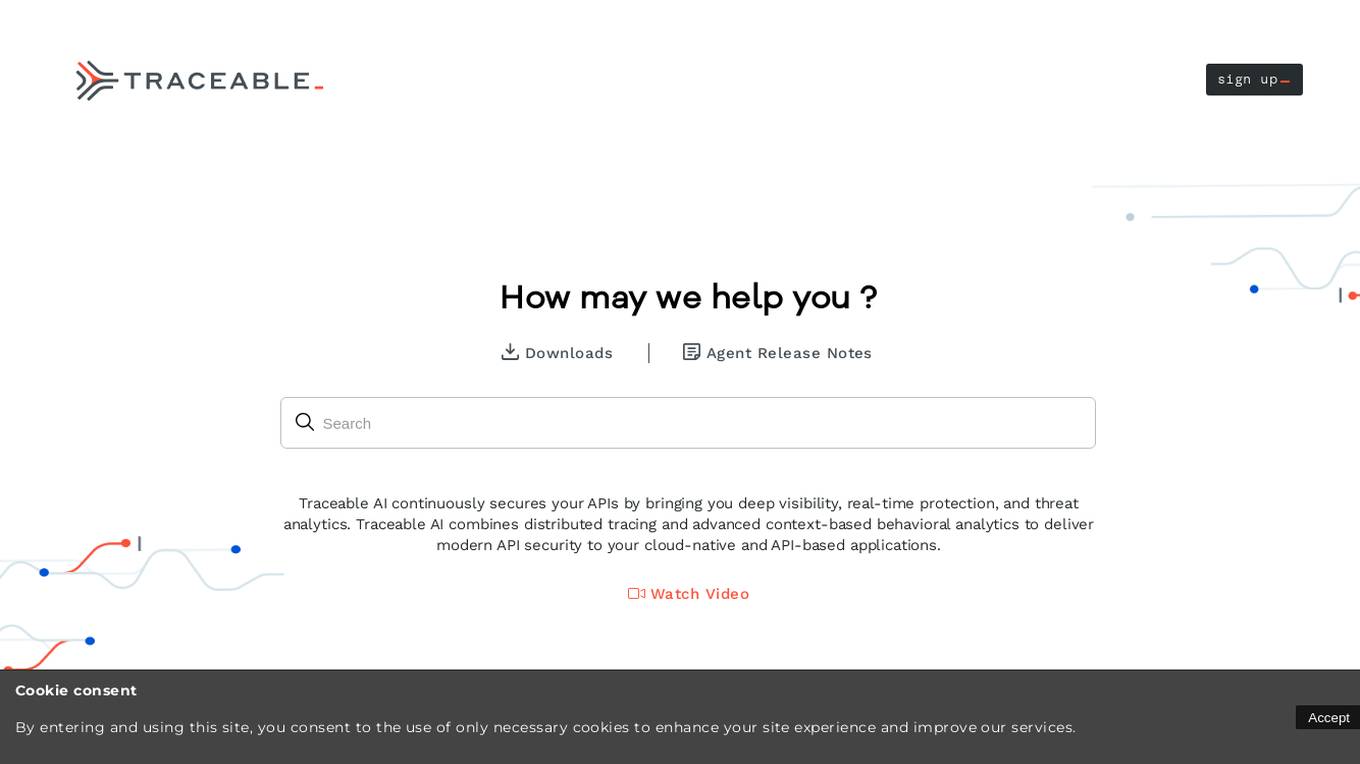
Traceable
Traceable is an AI-driven application designed to enhance API security for Cloud-Native Apps. It collects API traffic across the application landscape and utilizes advanced context-based behavioral analytics AI engine to provide insights on APIs, data exposure, threat analytics, and forensics. The platform offers features for API cataloging, activity monitoring, endpoint details, ownership, vulnerabilities, protection against security events, testing, analytics, and more. Traceable also allows for role-based access control, policy configuration, data classification, and integration with third-party solutions for data collection and security. It is a comprehensive tool for API security and threat detection in modern cloud environments.

Ongil
Ongil is an AI solutions provider that helps industries transform their expertise into AI solutions in a matter of weeks. By leveraging domain-optimized components, Ongil accelerates AI development by 10x, enabling businesses to deploy production-ready AI solutions. The platform offers tailored AI solutions for various industry challenges, personalized portfolio optimization, emissions estimation, supply chain intelligence, and more. Ongil's unique approach combines industry-specific components to create maintainable and scalable AI systems for enterprise production environments.
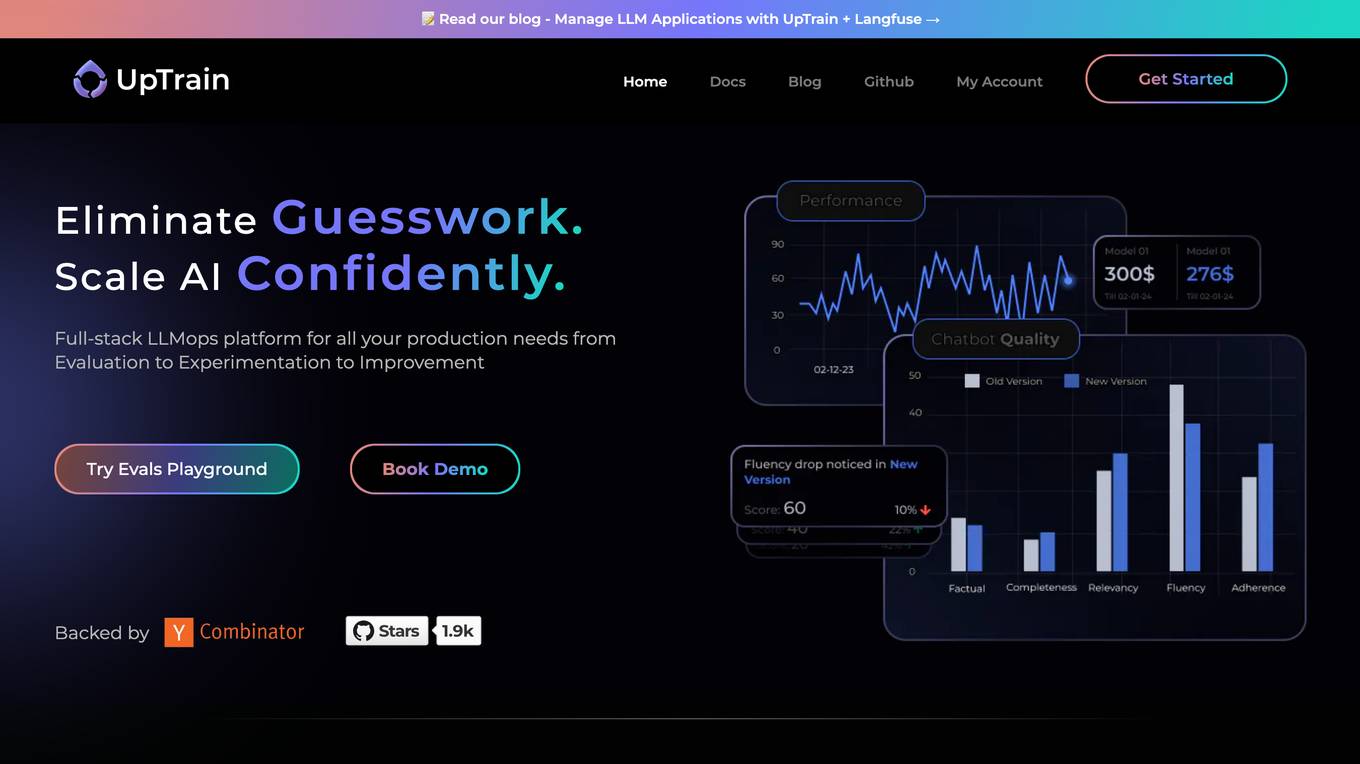
UpTrain
UpTrain is a full-stack LLMOps platform designed to help users with all their production needs, from evaluation to experimentation to improvement. It offers diverse evaluations, automated regression testing, enriched datasets, and precision metrics to enhance the development of LLM applications. UpTrain is built for developers, by developers, and is compliant with data governance needs. It provides cost efficiency, reliability, and open-source core evaluation framework. The platform is suitable for developers, product managers, and business leaders looking to enhance their LLM applications.
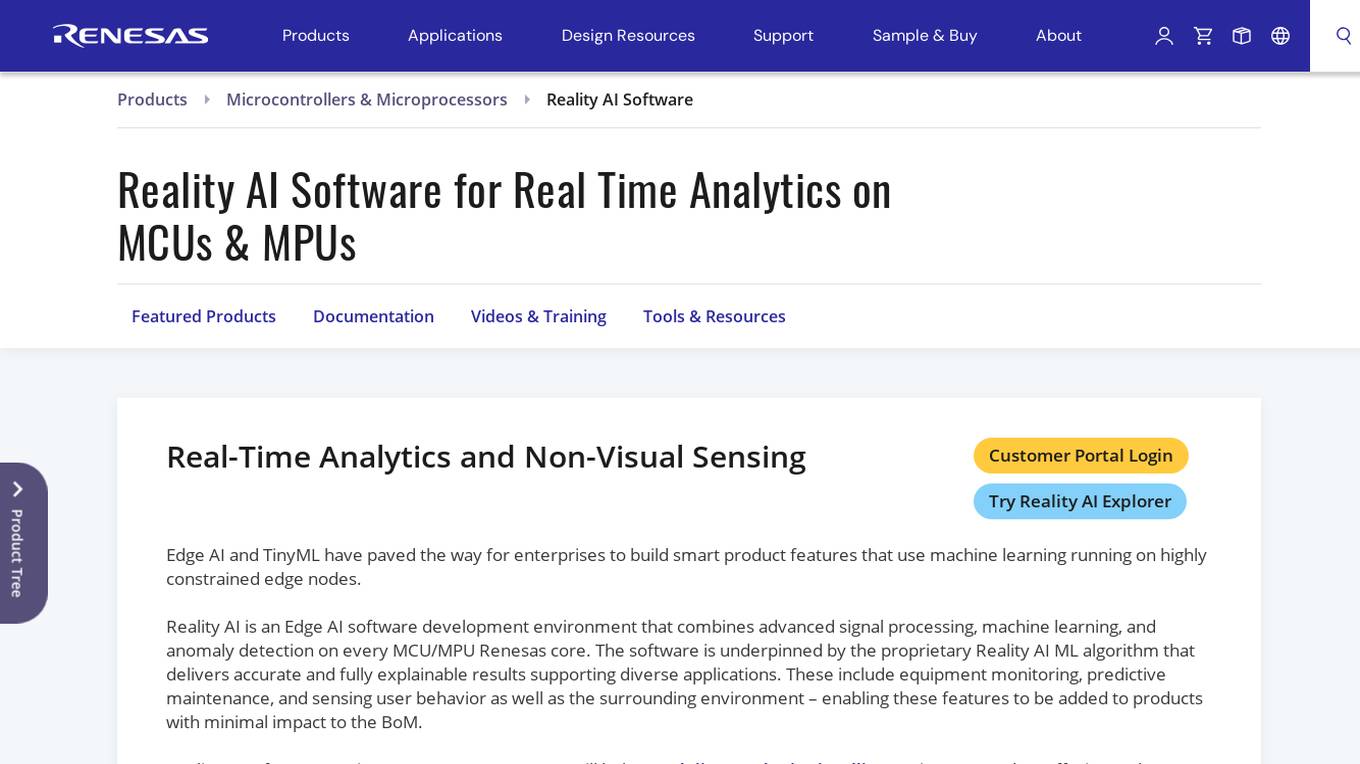
Reality AI Software
Reality AI Software is an Edge AI software development environment that combines advanced signal processing, machine learning, and anomaly detection on every MCU/MPU Renesas core. The software is underpinned by the proprietary Reality AI ML algorithm that delivers accurate and fully explainable results supporting diverse applications. It enables features like equipment monitoring, predictive maintenance, and sensing user behavior and the surrounding environment with minimal impact on the Bill of Materials (BoM). Reality AI software running on Renesas processors helps deliver endpoint intelligence in products across various markets.
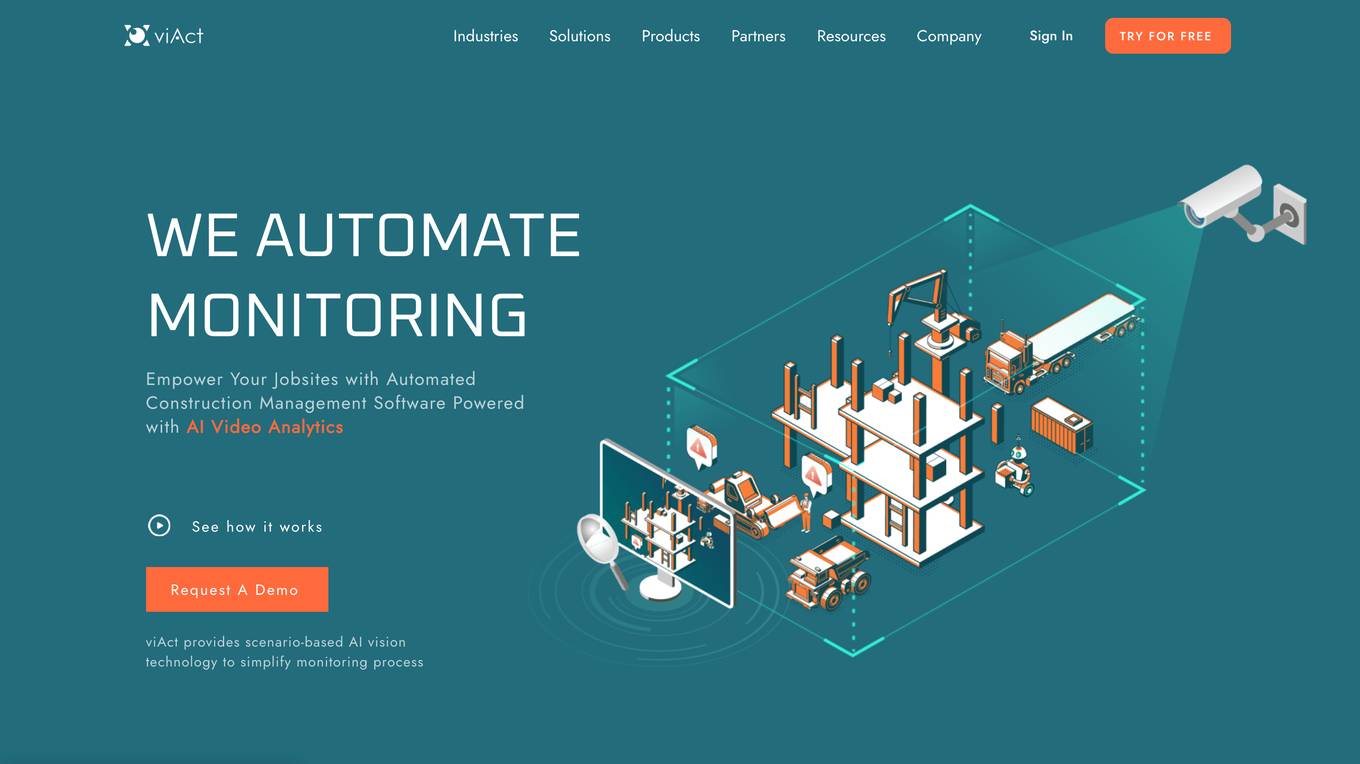
viAct.ai
viAct.ai is an AI-powered Construction Management Software and App that utilizes computer vision and video analytics for workplace safety. The platform offers scenario-based AI vision technology to simplify monitoring processes, automate construction management, and enhance safety measures on construction sites. viAct.ai has been recognized for its innovative technology and has received several awards for its contribution to the construction industry.
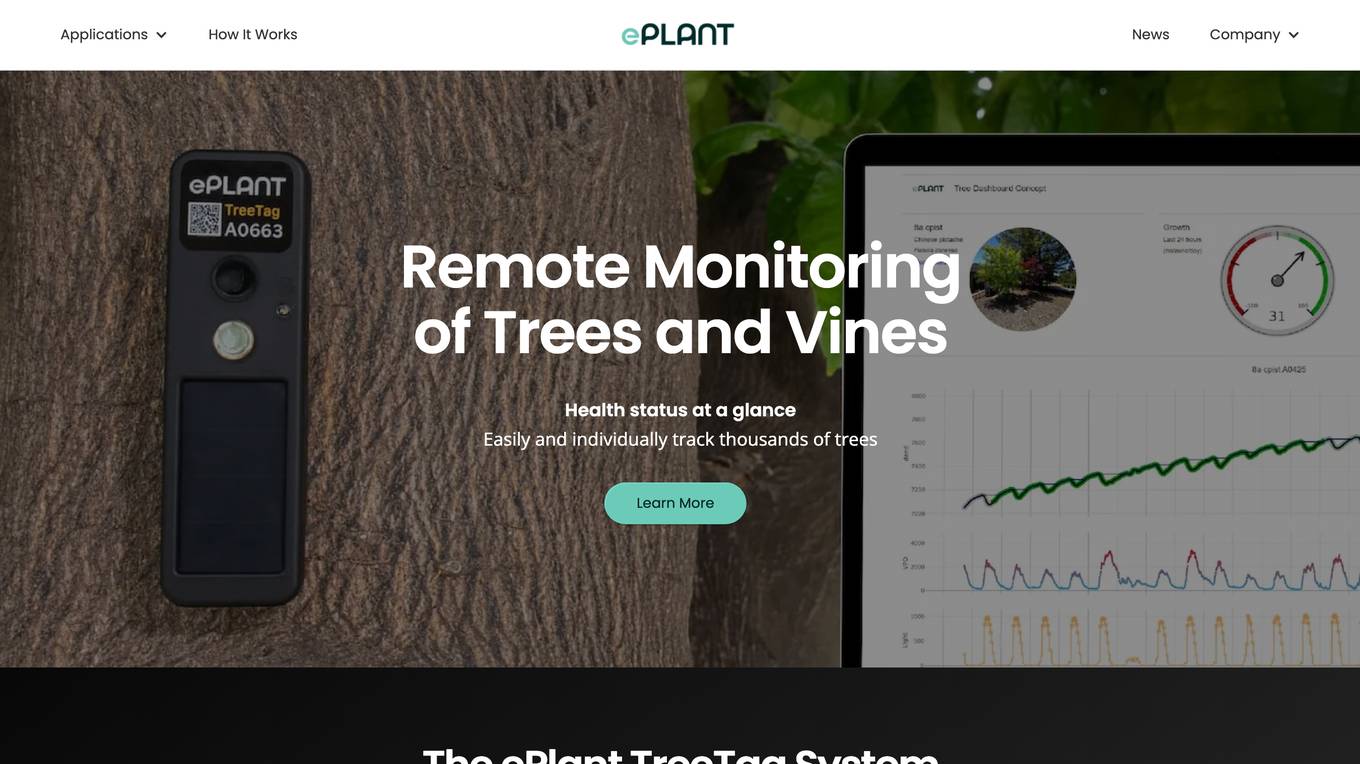
ePlant
ePlant is an AI-powered platform that revolutionizes plant data collection and application. It offers advanced plant-data intelligence through state-of-the-art wireless plant health monitors and AI technology. The platform enables users to remotely monitor trees and vines, track plant growth and stress, and measure environmental factors like temperature, light, and humidity. ePlant is trusted by experts in various fields such as research, urban forestry, precision agriculture, and silviculture. The TreeTag system, a key feature of ePlant, has been recognized as one of TIME's Best Inventions. With a focus on innovation and sustainability, ePlant is a valuable tool for anyone looking to optimize plant health and productivity.
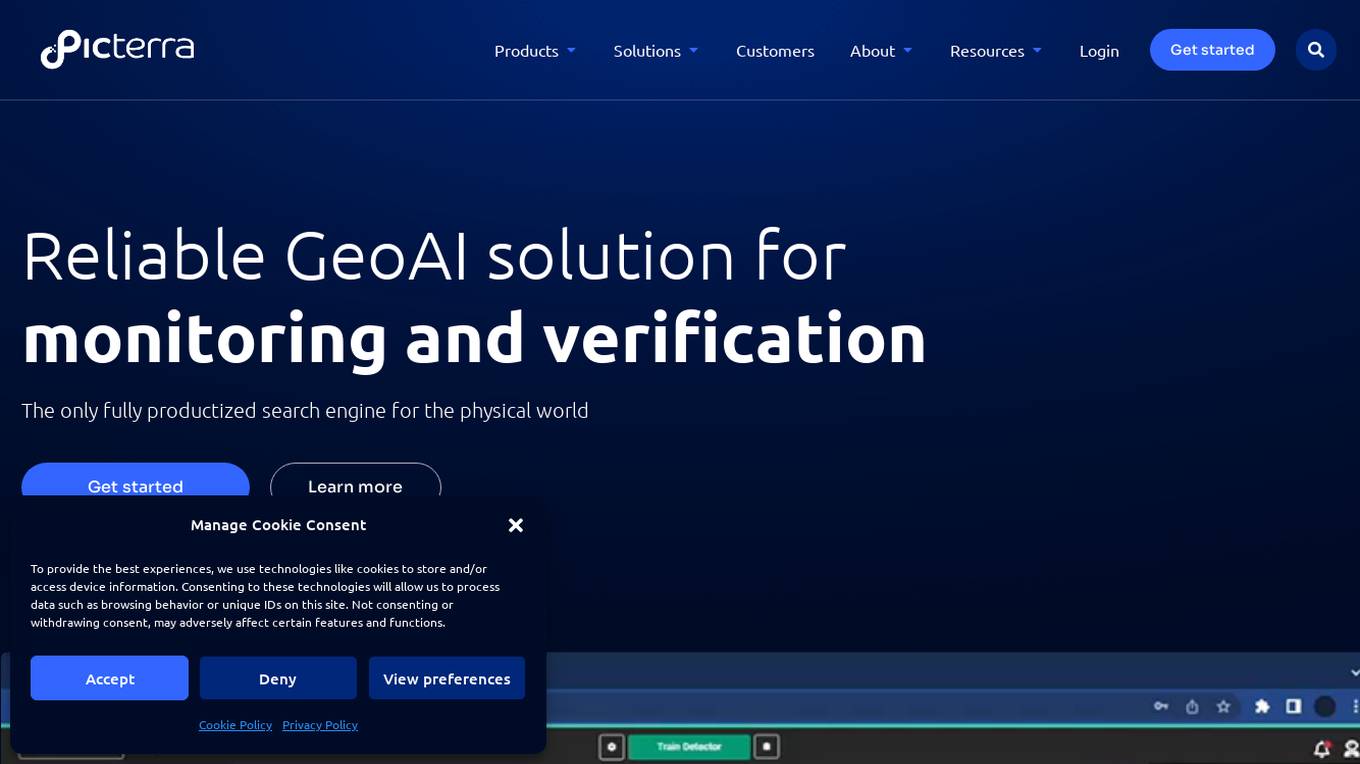
Picterra
Picterra is a geospatial AI platform that offers reliable solutions for sustainability, compliance, monitoring, and verification. It provides an all-in-one plot monitoring system, professional services, and interactive tours. Users can build custom AI models to detect objects, changes, or patterns using various geospatial imagery data. Picterra aims to revolutionize geospatial analysis with its category-leading AI technology, enabling users to solve challenges swiftly, collaborate more effectively, and scale further.

Green Cubes
Green Cubes is an AI application that provides precise volume, complexity, and biodiversity indication of terrestrial areas at scale for Digital Reality and Sponsorship. It shapes the digital twin of nature, offering transparency and trust through Measure, Report, and Verification (MVR) using data collection, AI computation, and 3D visualization. Green Cubes enables corporations to sponsor nature impact with confidence and transparency, contributing to the preservation of biodiversity.
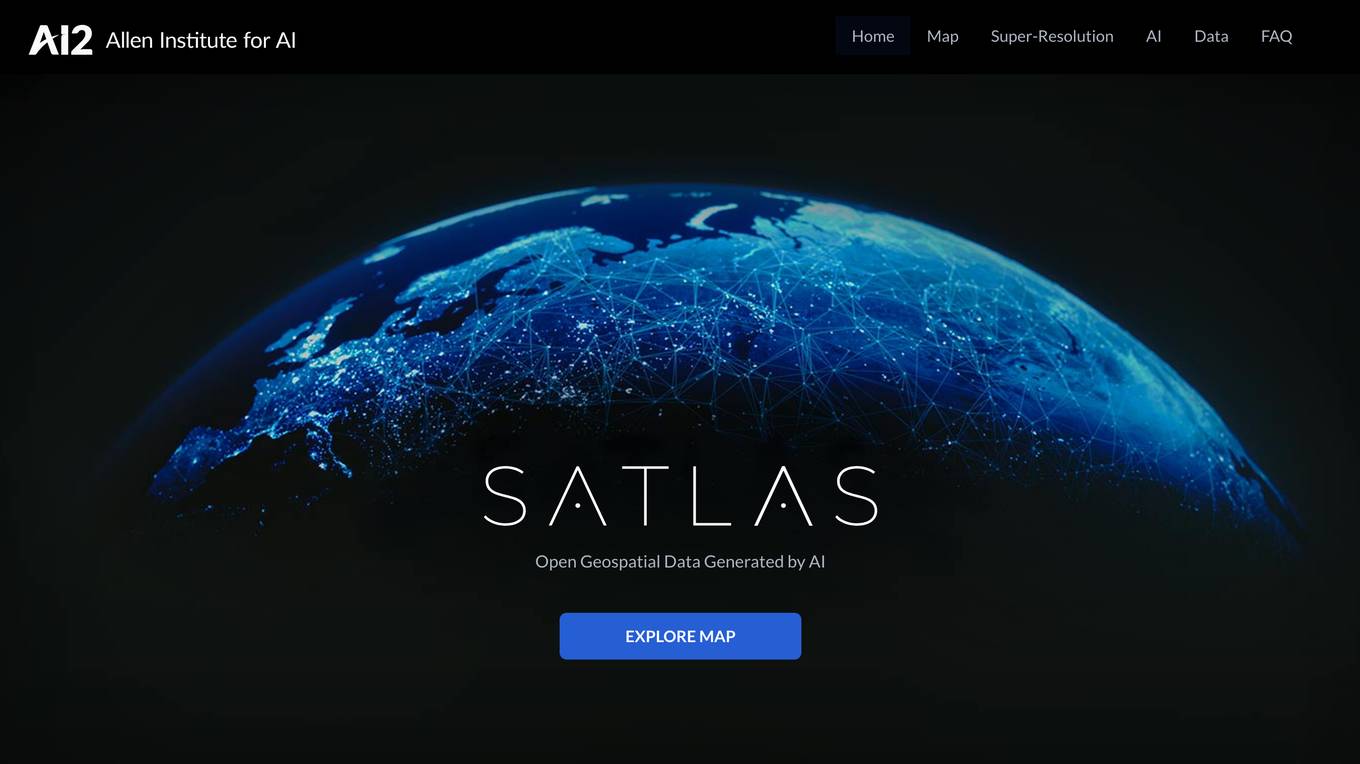
Satlas
Satlas is an AI-powered platform that provides geospatial data generated by AI models. The platform showcases how our planet is changing by revealing insights into marine infrastructure, renewable energy infrastructure, and tree cover. Satlas employs state-of-the-art AI architectures and training algorithms in computer vision to enhance low-resolution satellite imagery and produce high-resolution images on a global scale. The AI-generated geospatial datasets are freely available for offline analysis, along with AI models and training labels. The platform is developed and maintained by PRIOR and colleagues at the Allen Institute for AI, aiming to advance computer vision and create AI systems that understand and reason about the world.
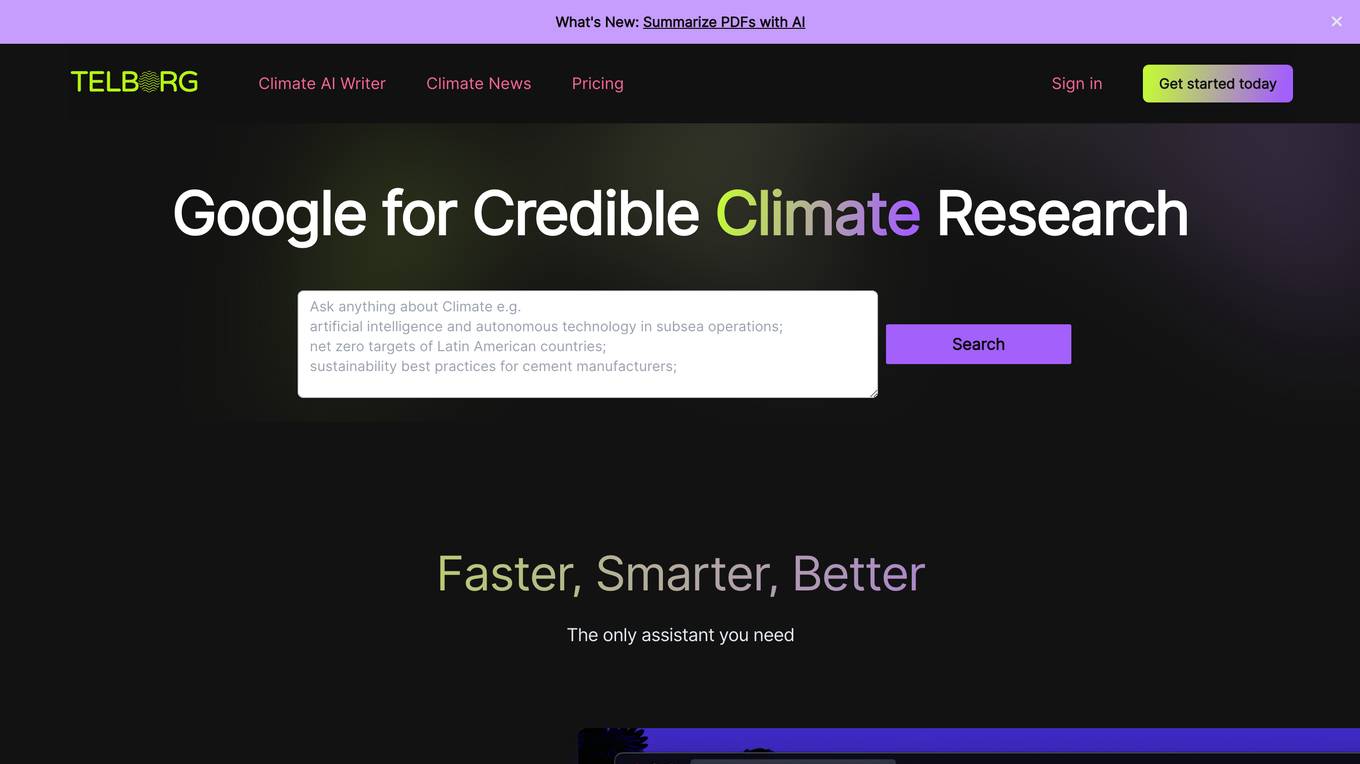
Telborg
Telborg is an AI-powered platform that provides daily climate news sourced from verified entities such as companies, governments, international institutions, think tanks, and universities. It offers insights on carbon removal technologies, climate finance, renewables, and synthetic fuels. Telborg stands out for its concise AI-generated summaries, real-time updates via WhatsApp, and direct source links. The platform covers global news comprehensively, making it a valuable resource for staying informed about climate-related developments.
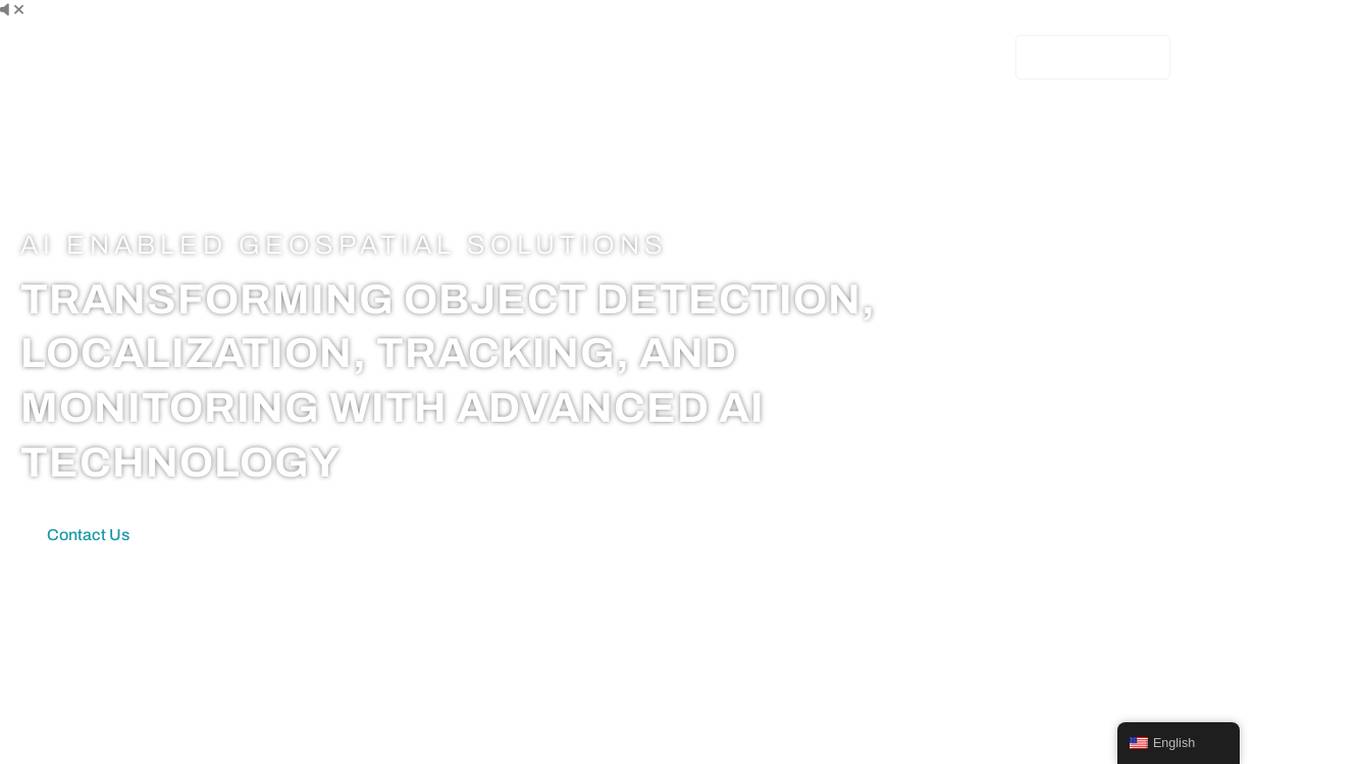
FlyPix
FlyPix is an AI-enabled geospatial solutions platform that leverages advanced AI technology to transform object detection, localization, tracking, and monitoring in the field of geospatial technology. The platform offers a wide range of capabilities, including AI-driven object analysis, change and anomaly detection, dynamic tracking, and custom use cases tailored to meet unique industry needs. FlyPix aims to provide unparalleled precision and efficiency in operations by converting complex imagery into actionable, geo-referenced insights.

ExamRoom.AI®
ExamRoom.AI® is a web-based remote proctoring solution that offers a streamlined and scalable proctoring service tailored to the needs of organizations and individuals. The platform provides online assessment tools, professional services, and ready-made content to ensure secure and efficient exam processes. With a blend of human and AI proctoring, ExamRoom.AI® offers features like real-time analytics, Exam 360, ExamLock, and Exam Prism to enhance exam security and integrity. The platform supports various services such as live proctoring, recorded proctoring, review proctoring, and platform as a service (PAAS) to cater to different exam requirements. ExamRoom.AI® is committed to providing a secure testing environment, convenient online testing, and exceptional customer service to all users.
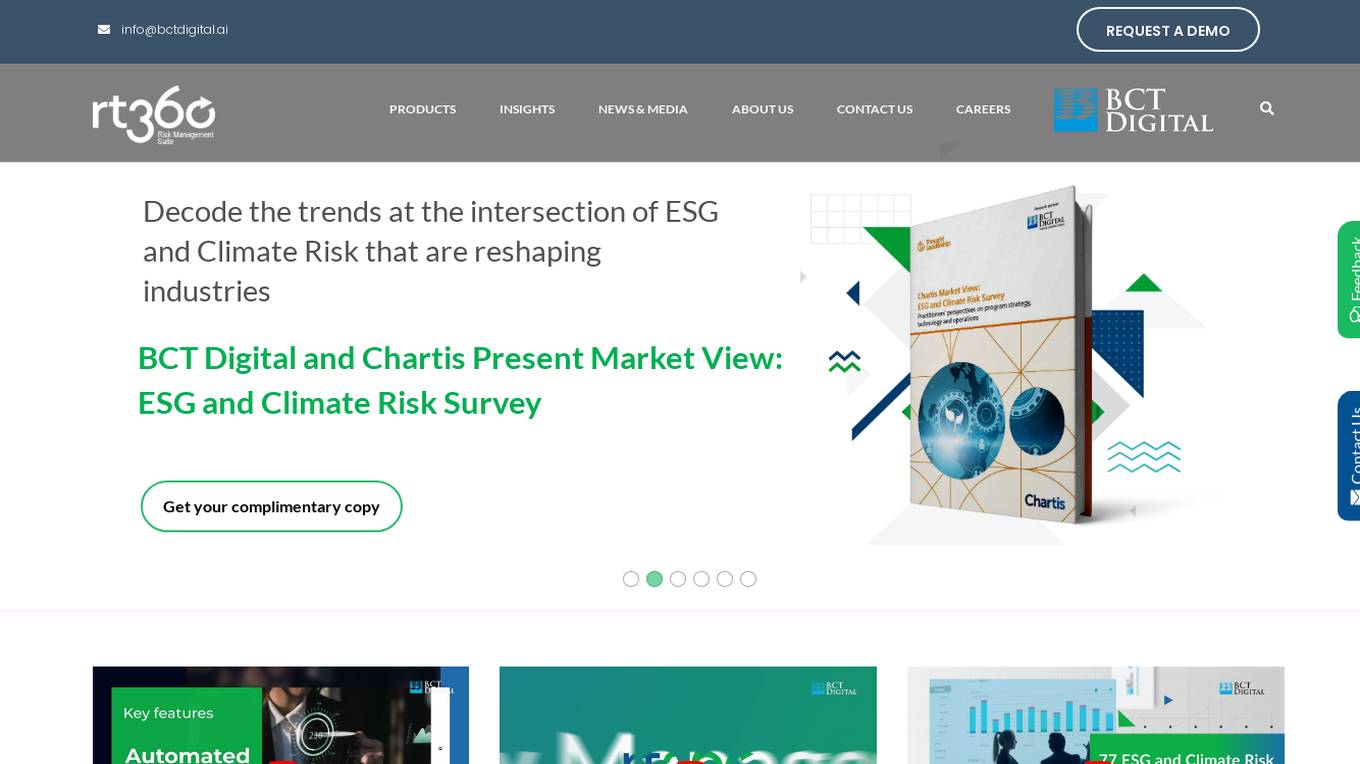
BCT Digital
BCT Digital is an AI-powered risk management suite provider that offers a range of products to help enterprises optimize their core Governance, Risk, and Compliance (GRC) processes. The rt360 suite leverages next-generation technologies, sophisticated AI/ML models, data-driven algorithms, and predictive analytics to assist organizations in managing various risks effectively. BCT Digital's solutions cater to the financial sector, providing tools for credit risk monitoring, early warning systems, model risk management, environmental, social, and governance (ESG) risk assessment, and more.

CallCare
CallCare is an AI-driven application designed to provide peace of mind for users concerned about the mental wellness of their elderly loved ones. The platform allows users to schedule intelligent calls to monitor the well-being of their loved ones, analyze call details with advanced analytics, and track mental wellness metrics through detailed reports. With a focus on mimicking human interaction, CallCare offers a secure and private environment for engaging conversations that aim to detect any mental wellness decline early on.
20 - Open Source AI Tools
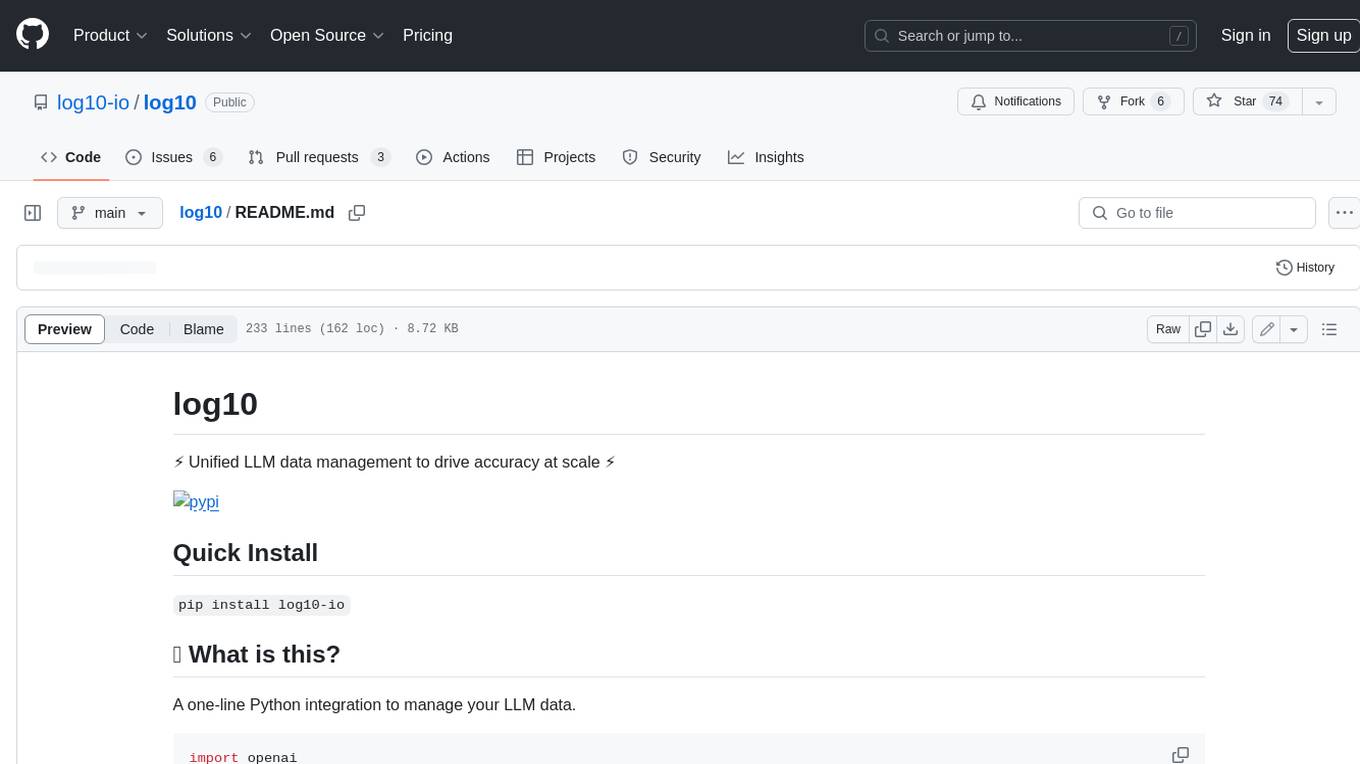
log10
Log10 is a one-line Python integration to manage your LLM data. It helps you log both closed and open-source LLM calls, compare and identify the best models and prompts, store feedback for fine-tuning, collect performance metrics such as latency and usage, and perform analytics and monitor compliance for LLM powered applications. Log10 offers various integration methods, including a python LLM library wrapper, the Log10 LLM abstraction, and callbacks, to facilitate its use in both existing production environments and new projects. Pick the one that works best for you. Log10 also provides a copilot that can help you with suggestions on how to optimize your prompt, and a feedback feature that allows you to add feedback to your completions. Additionally, Log10 provides prompt provenance, session tracking and call stack functionality to help debug prompt chains. With Log10, you can use your data and feedback from users to fine-tune custom models with RLHF, and build and deploy more reliable, accurate and efficient self-hosted models. Log10 also supports collaboration, allowing you to create flexible groups to share and collaborate over all of the above features.
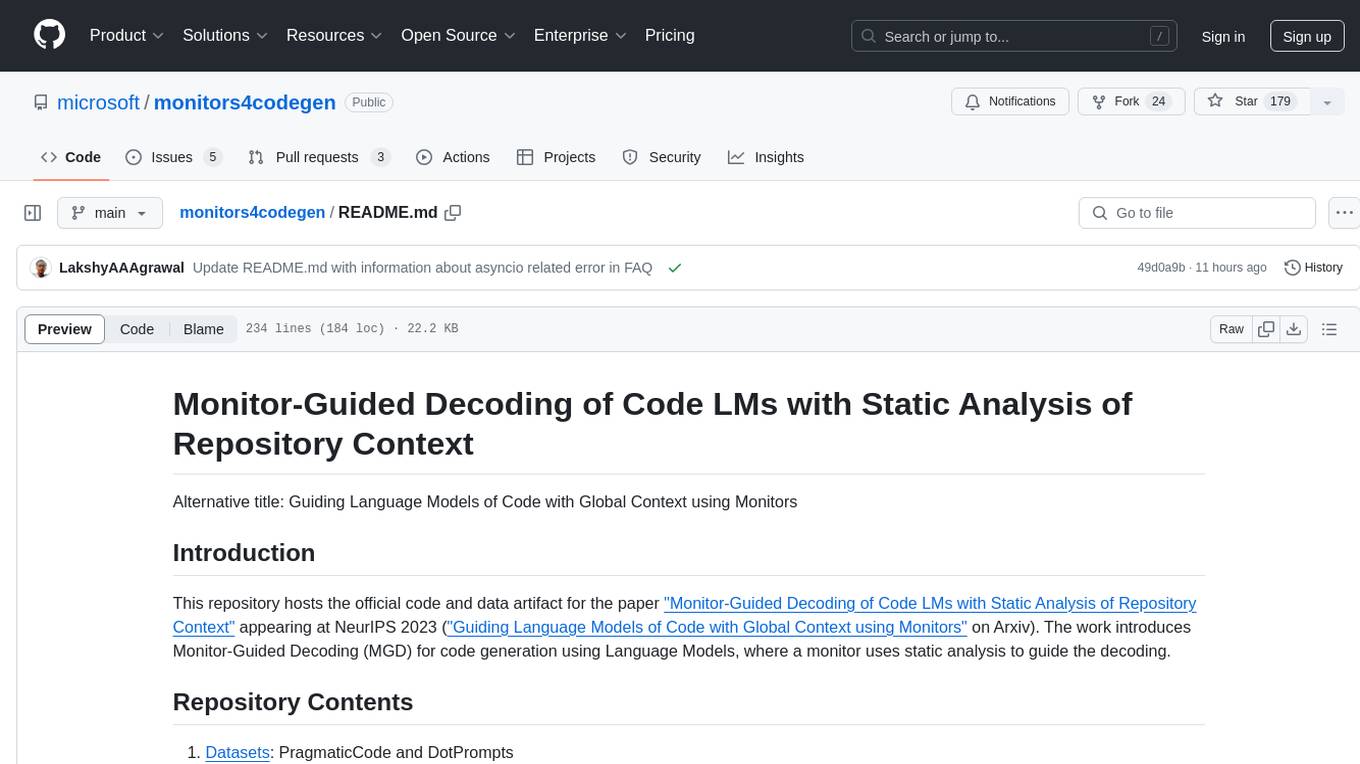
monitors4codegen
This repository hosts the official code and data artifact for the paper 'Monitor-Guided Decoding of Code LMs with Static Analysis of Repository Context'. It introduces Monitor-Guided Decoding (MGD) for code generation using Language Models, where a monitor uses static analysis to guide the decoding. The repository contains datasets, evaluation scripts, inference results, a language server client 'multilspy' for static analyses, and implementation of various monitors monitoring for different properties in 3 programming languages. The monitors guide Language Models to adhere to properties like valid identifier dereferences, correct number of arguments to method calls, typestate validity of method call sequences, and more.
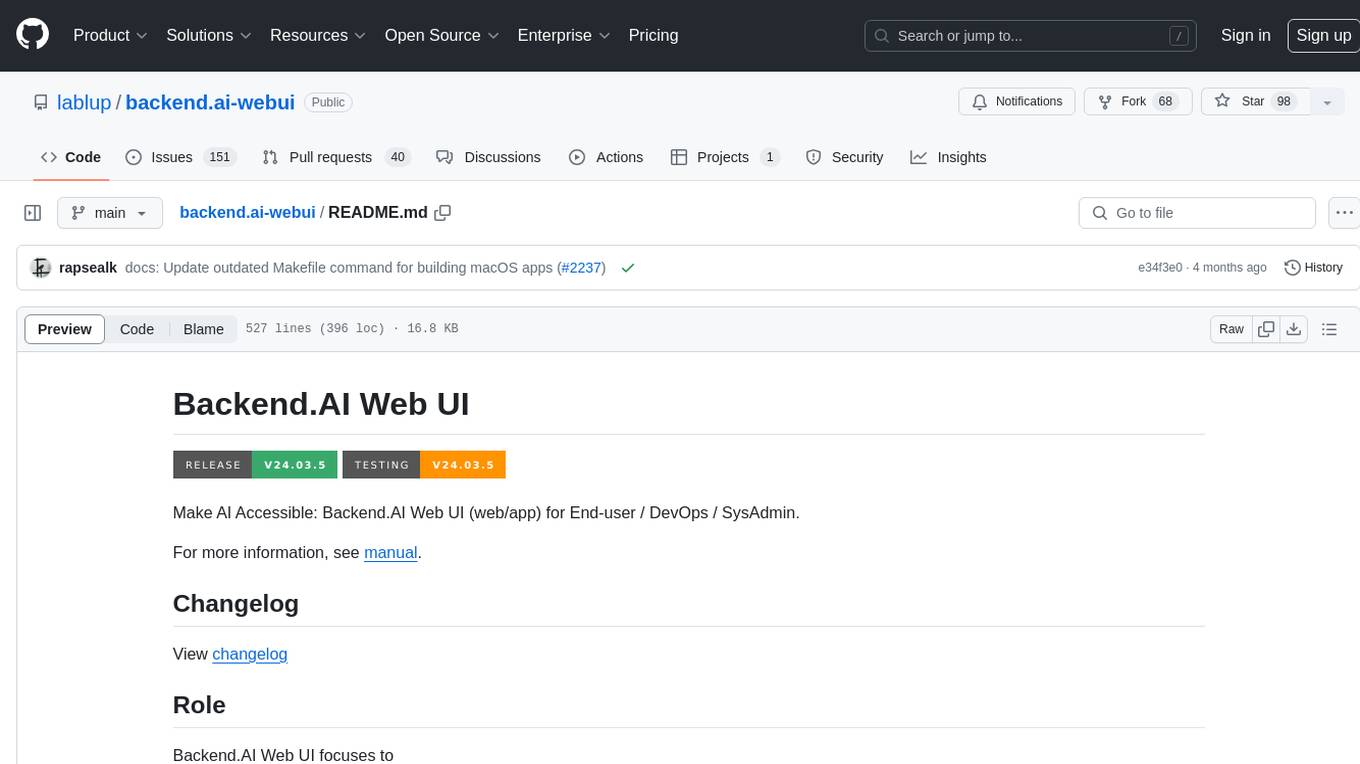
backend.ai-webui
Backend.AI Web UI is a user-friendly web and app interface designed to make AI accessible for end-users, DevOps, and SysAdmins. It provides features for session management, inference service management, pipeline management, storage management, node management, statistics, configurations, license checking, plugins, help & manuals, kernel management, user management, keypair management, manager settings, proxy mode support, service information, and integration with the Backend.AI Web Server. The tool supports various devices, offers a built-in websocket proxy feature, and allows for versatile usage across different platforms. Users can easily manage resources, run environment-supported apps, access a web-based terminal, use Visual Studio Code editor, manage experiments, set up autoscaling, manage pipelines, handle storage, monitor nodes, view statistics, configure settings, and more.
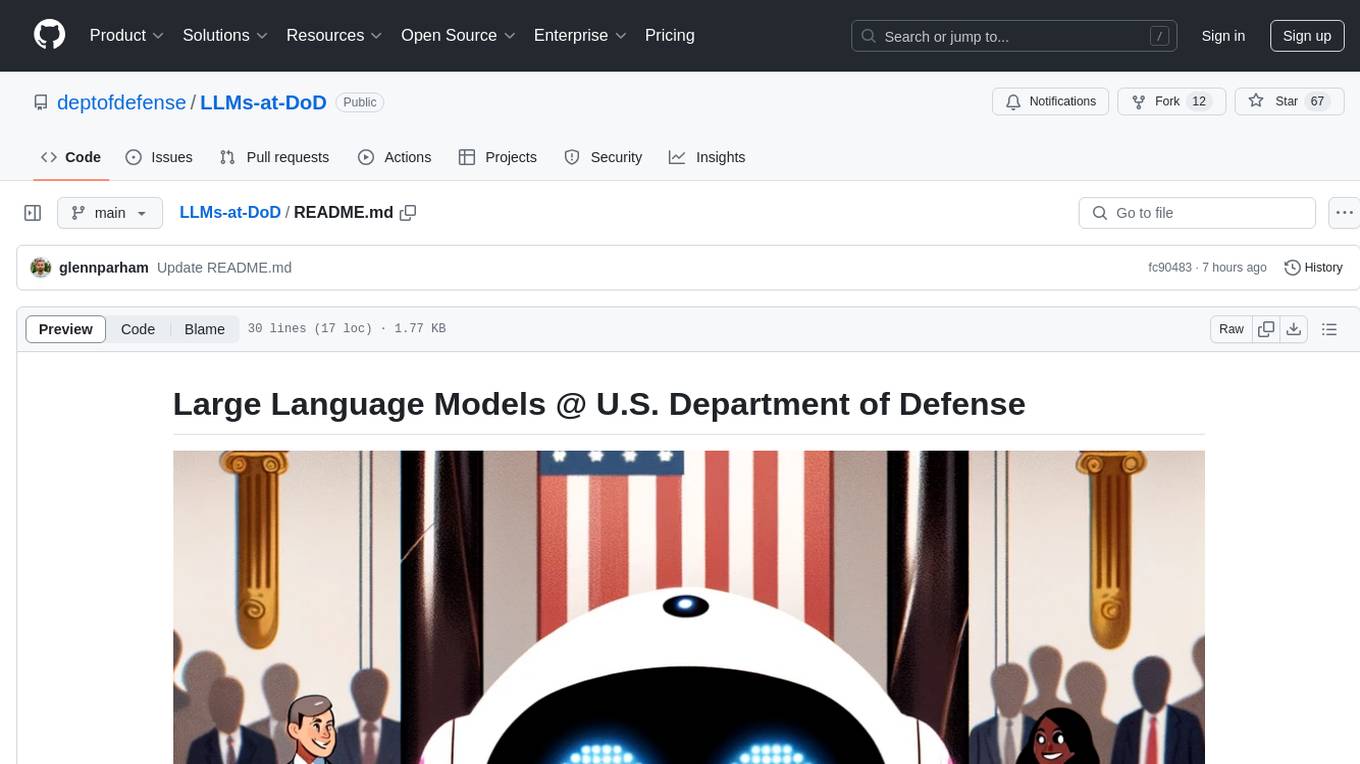
LLMs-at-DoD
This repository contains tutorials for using Large Language Models (LLMs) in the U.S. Department of Defense. The tutorials utilize open-source frameworks and LLMs, allowing users to run them in their own cloud environments. The repository is maintained by the Defense Digital Service and welcomes contributions from users.
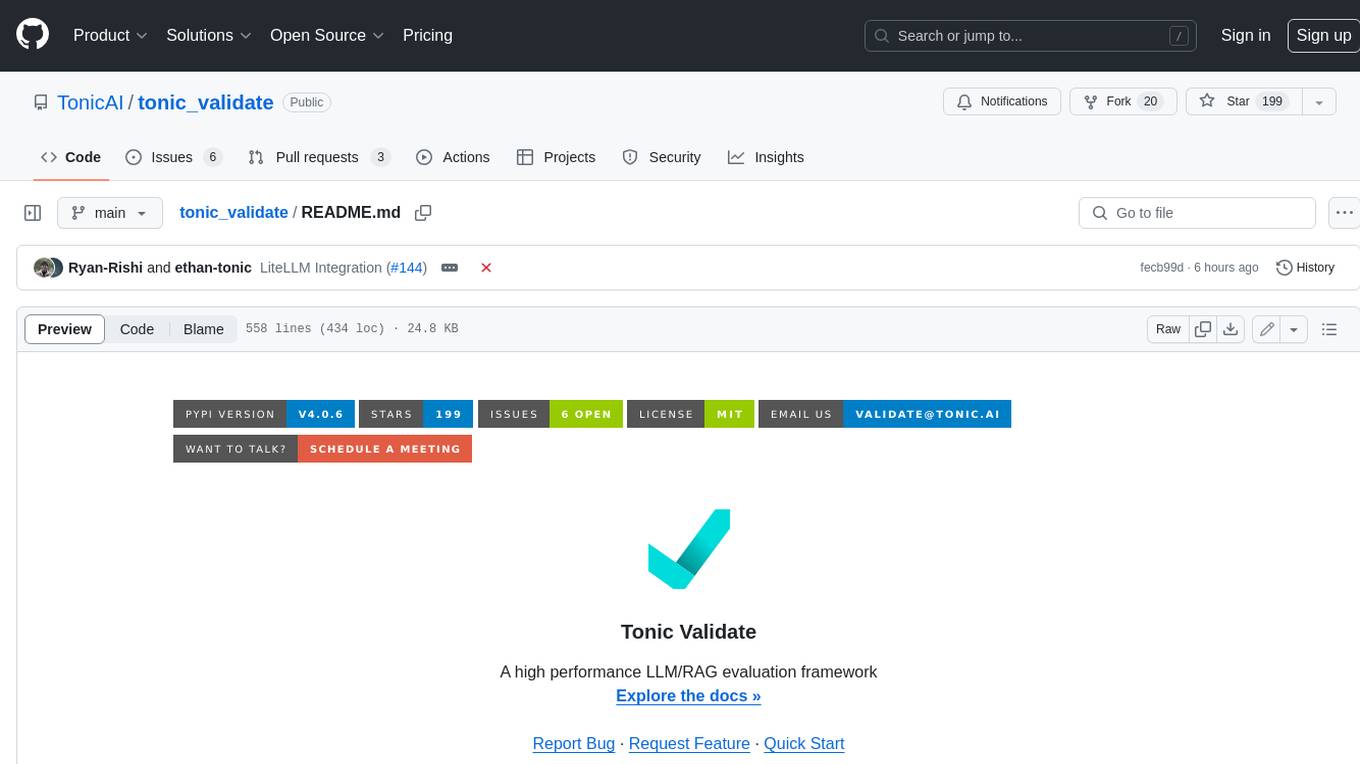
tonic_validate
Tonic Validate is a framework for the evaluation of LLM outputs, such as Retrieval Augmented Generation (RAG) pipelines. Validate makes it easy to evaluate, track, and monitor your LLM and RAG applications. Validate allows you to evaluate your LLM outputs through the use of our provided metrics which measure everything from answer correctness to LLM hallucination. Additionally, Validate has an optional UI to visualize your evaluation results for easy tracking and monitoring.
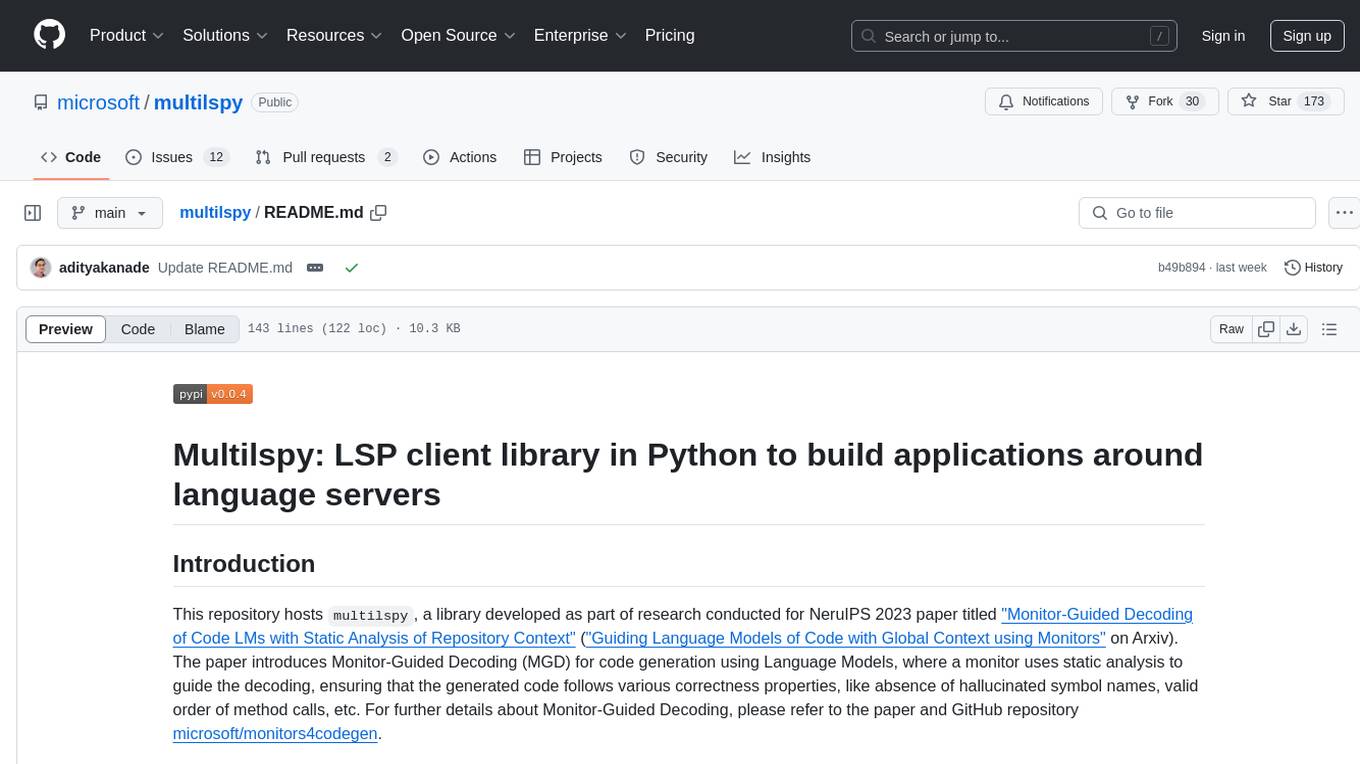
multilspy
Multilspy is a Python library developed for research purposes to facilitate the creation of language server clients for querying and obtaining results of static analyses from various language servers. It simplifies the process by handling server setup, communication, and configuration parameters, providing a common interface for different languages. The library supports features like finding function/class definitions, callers, completions, hover information, and document symbols. It is designed to work with AI systems like Large Language Models (LLMs) for tasks such as Monitor-Guided Decoding to ensure code generation correctness and boost compilability.

dify
Dify is an open-source LLM app development platform that combines AI workflow, RAG pipeline, agent capabilities, model management, observability features, and more. It allows users to quickly go from prototype to production. Key features include: 1. Workflow: Build and test powerful AI workflows on a visual canvas. 2. Comprehensive model support: Seamless integration with hundreds of proprietary / open-source LLMs from dozens of inference providers and self-hosted solutions. 3. Prompt IDE: Intuitive interface for crafting prompts, comparing model performance, and adding additional features. 4. RAG Pipeline: Extensive RAG capabilities that cover everything from document ingestion to retrieval. 5. Agent capabilities: Define agents based on LLM Function Calling or ReAct, and add pre-built or custom tools. 6. LLMOps: Monitor and analyze application logs and performance over time. 7. Backend-as-a-Service: All of Dify's offerings come with corresponding APIs for easy integration into your own business logic.
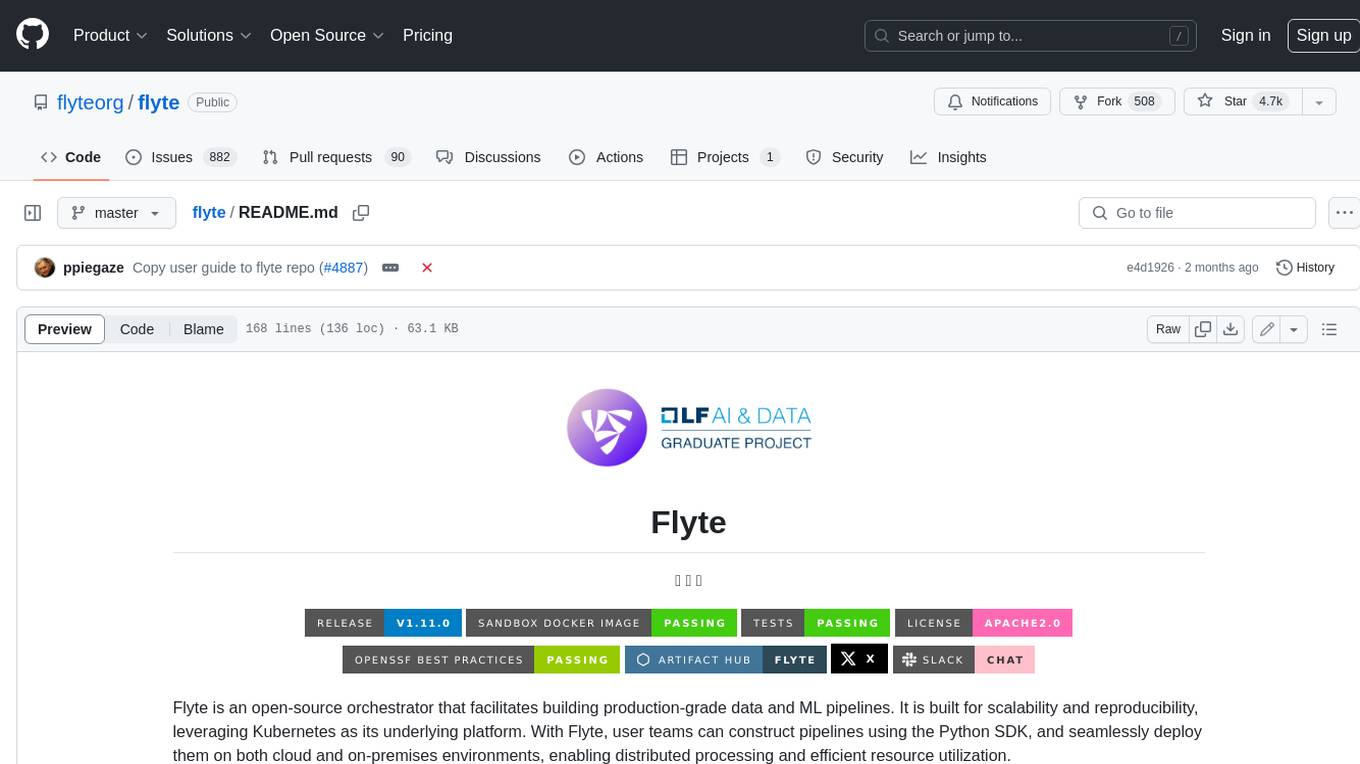
flyte
Flyte is an open-source orchestrator that facilitates building production-grade data and ML pipelines. It is built for scalability and reproducibility, leveraging Kubernetes as its underlying platform. With Flyte, user teams can construct pipelines using the Python SDK, and seamlessly deploy them on both cloud and on-premises environments, enabling distributed processing and efficient resource utilization.
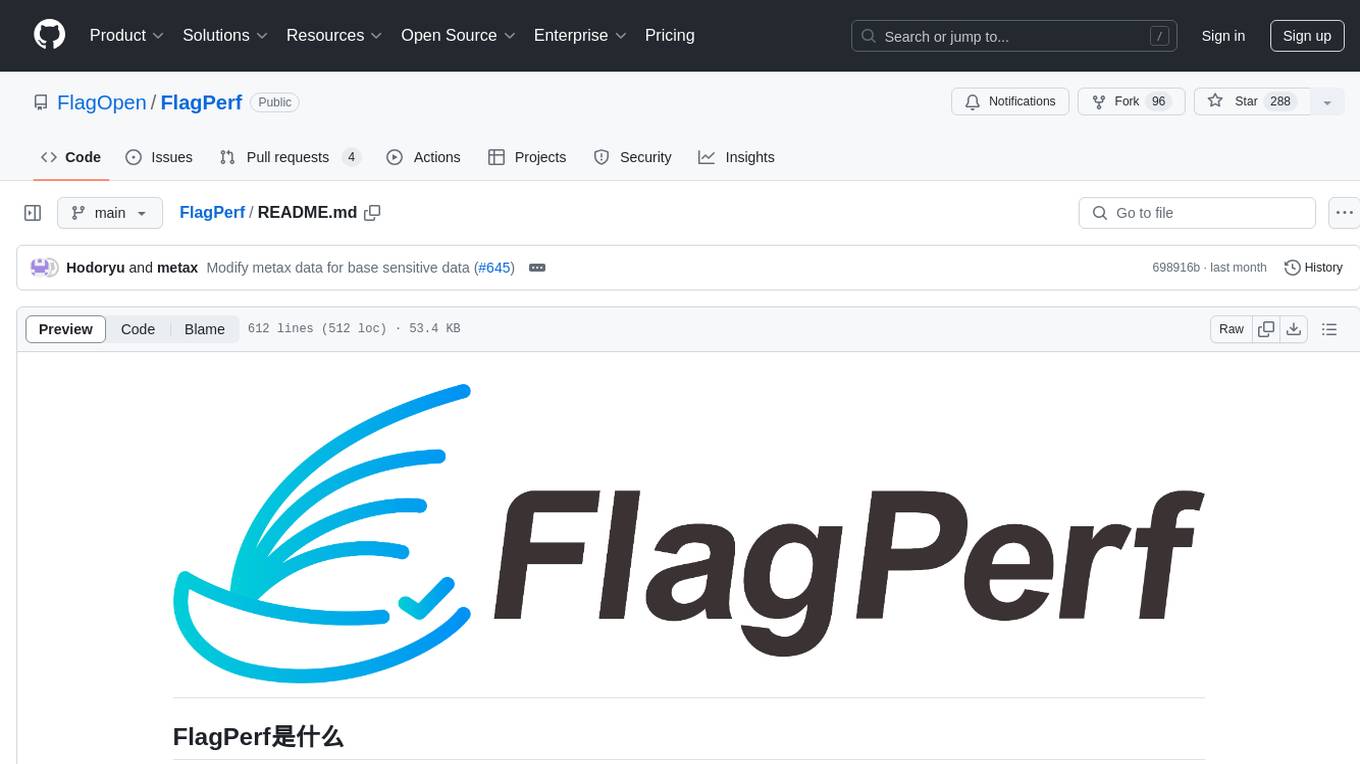
FlagPerf
FlagPerf is an integrated AI hardware evaluation engine jointly built by the Institute of Intelligence and AI hardware manufacturers. It aims to establish an industry-oriented metric system to evaluate the actual capabilities of AI hardware under software stack combinations (model + framework + compiler). FlagPerf features a multidimensional evaluation metric system that goes beyond just measuring 'whether the chip can support specific model training.' It covers various scenarios and tasks, including computer vision, natural language processing, speech, multimodal, with support for multiple training frameworks and inference engines to connect AI hardware with software ecosystems. It also supports various testing environments to comprehensively assess the performance of domestic AI chips in different scenarios.
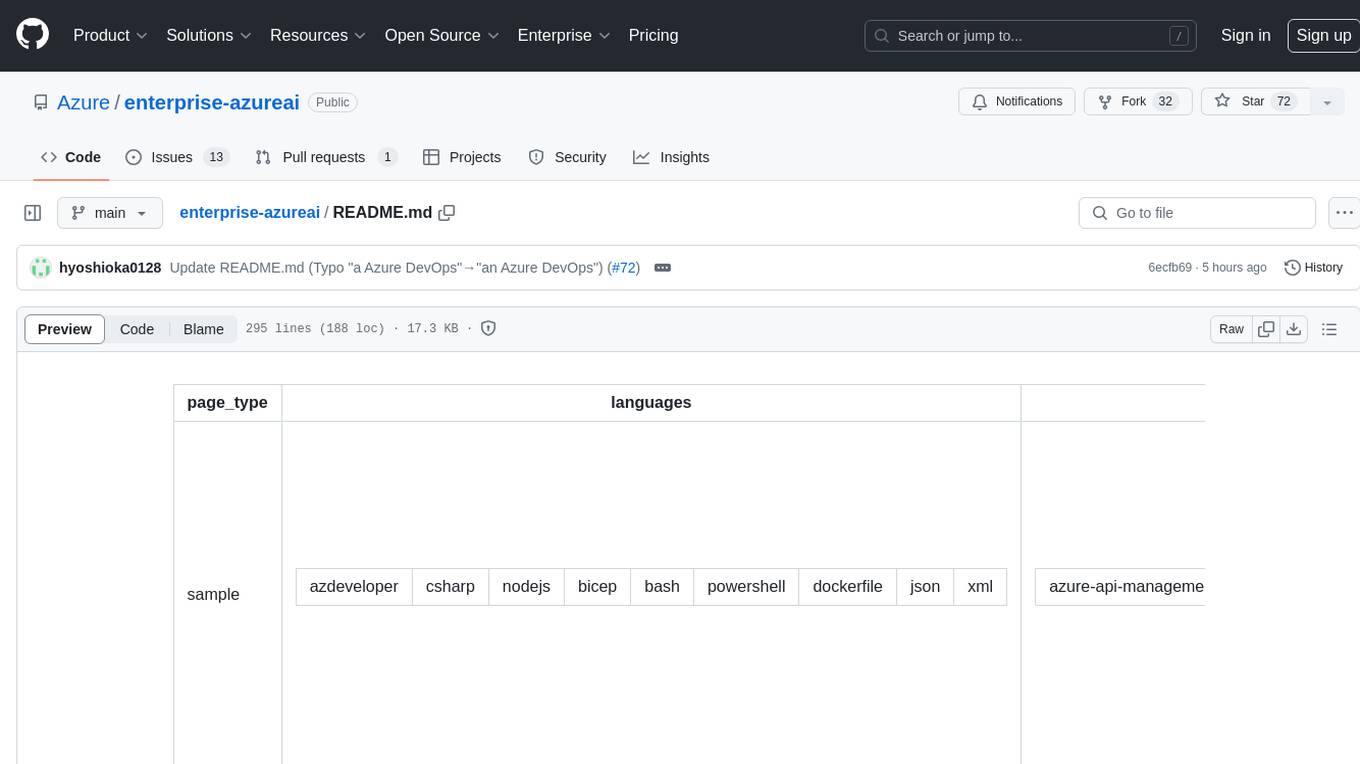
enterprise-azureai
Azure OpenAI Service is a central capability with Azure API Management, providing guidance and tools for organizations to implement Azure OpenAI in a production environment with an emphasis on cost control, secure access, and usage monitoring. It includes infrastructure-as-code templates, CI/CD pipelines, secure access management, usage monitoring, load balancing, streaming requests, and end-to-end samples like ChatApp and Azure Dashboards.
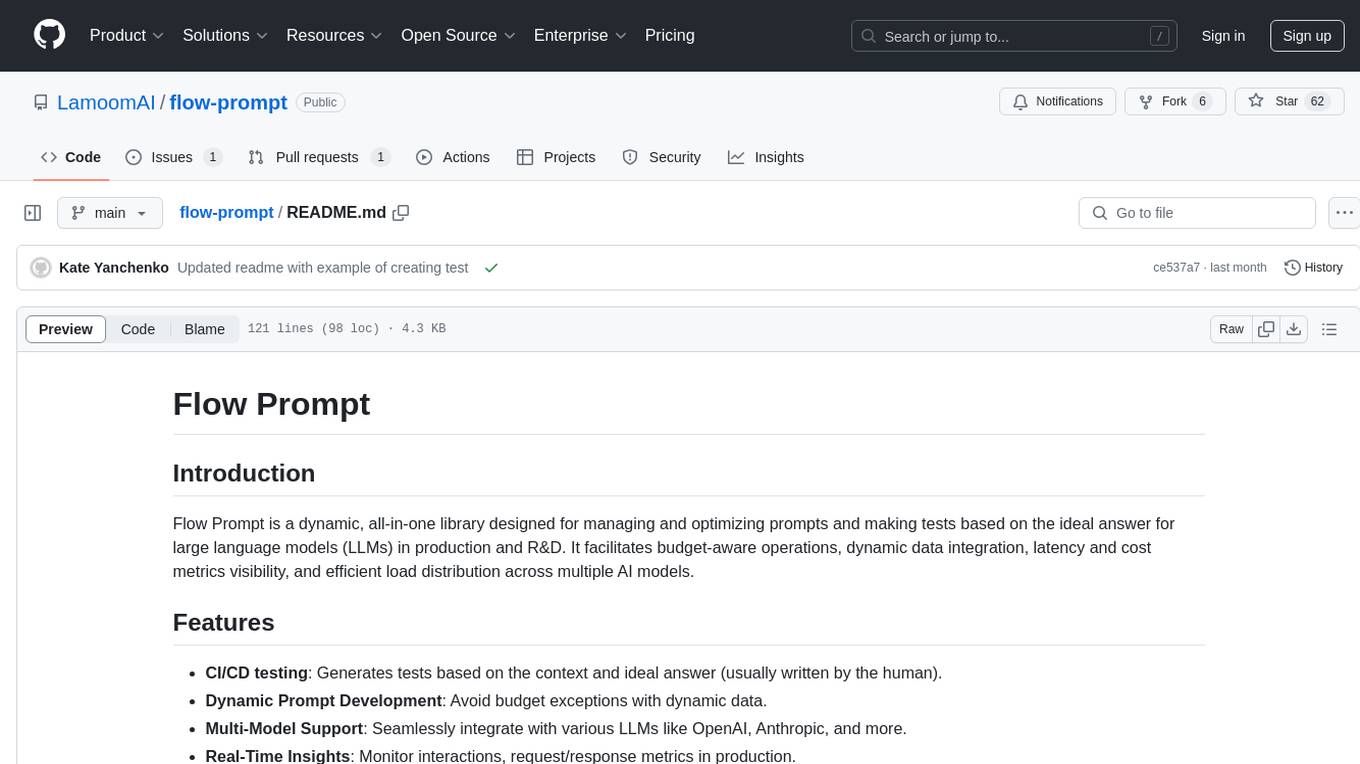
flow-prompt
Flow Prompt is a dynamic library for managing and optimizing prompts for large language models. It facilitates budget-aware operations, dynamic data integration, and efficient load distribution. Features include CI/CD testing, dynamic prompt development, multi-model support, real-time insights, and prompt testing and evolution.
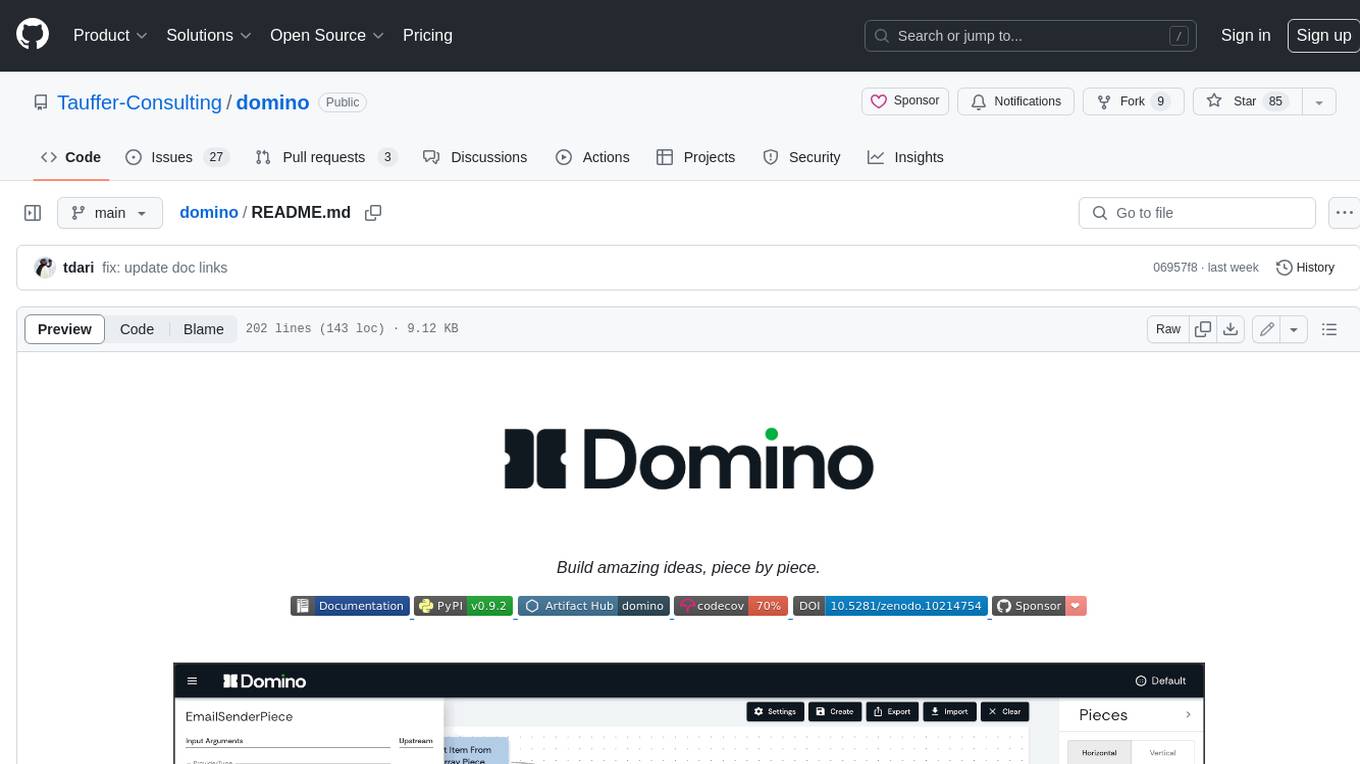
domino
Domino is an open source workflow management platform that provides an intuitive GUI for creating, editing, and monitoring workflows. It also offers a standard way of writing and publishing functional pieces that can be reused in multiple workflows. Domino is powered by Apache Airflow for top-tier workflows scheduling and monitoring.

ai-enablement-stack
The AI Enablement Stack is a curated collection of venture-backed companies, tools, and technologies that enable developers to build, deploy, and manage AI applications. It provides a structured view of the AI development ecosystem across five key layers: Agent Consumer Layer, Observability and Governance Layer, Engineering Layer, Intelligence Layer, and Infrastructure Layer. Each layer focuses on specific aspects of AI development, from end-user interaction to model training and deployment. The stack aims to help developers find the right tools for building AI applications faster and more efficiently, assist engineering leaders in making informed decisions about AI infrastructure and tooling, and help organizations understand the AI development landscape to plan technology adoption.
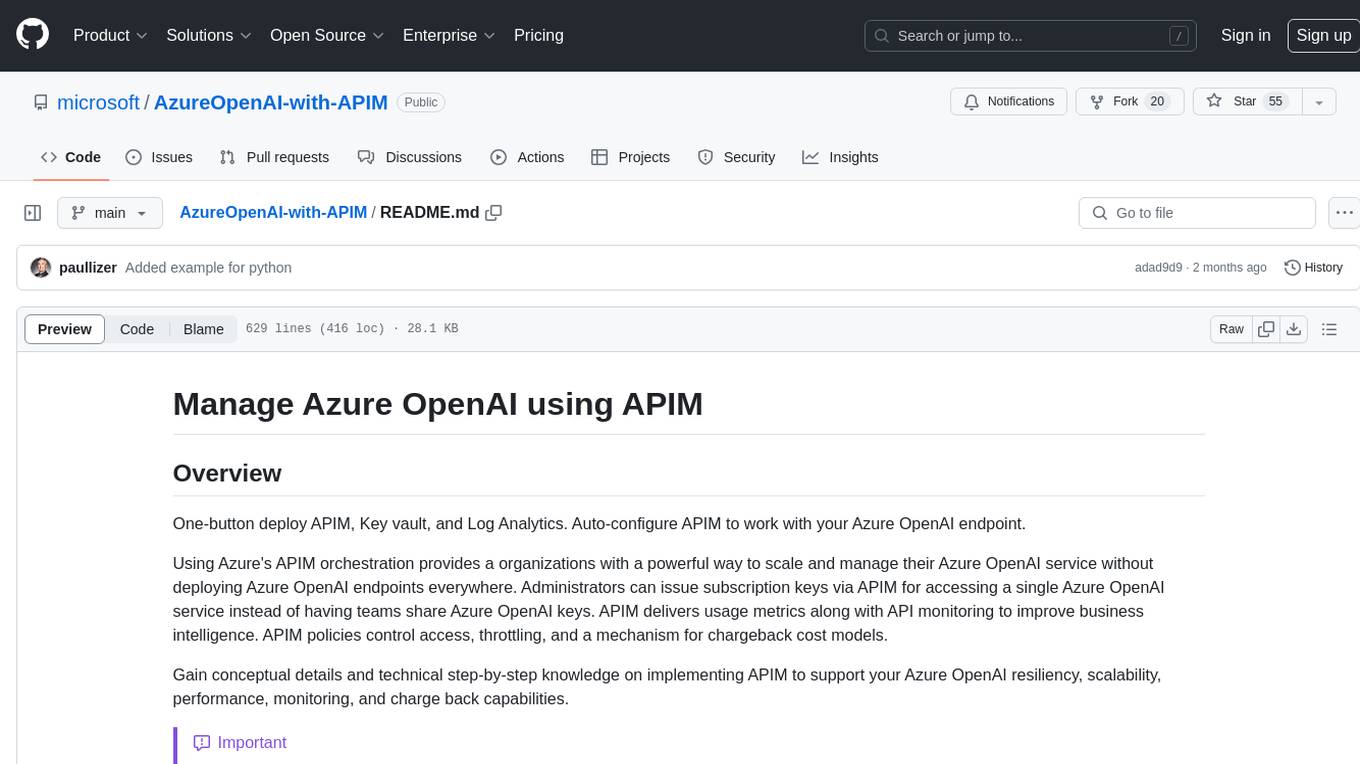
AzureOpenAI-with-APIM
AzureOpenAI-with-APIM is a repository that provides a one-button deploy solution for Azure API Management (APIM), Key Vault, and Log Analytics to work seamlessly with Azure OpenAI endpoints. It enables organizations to scale and manage their Azure OpenAI service efficiently by issuing subscription keys via APIM, delivering usage metrics, and implementing policies for access control and cost management. The repository offers detailed guidance on implementing APIM to enhance Azure OpenAI resiliency, scalability, performance, monitoring, and chargeback capabilities.
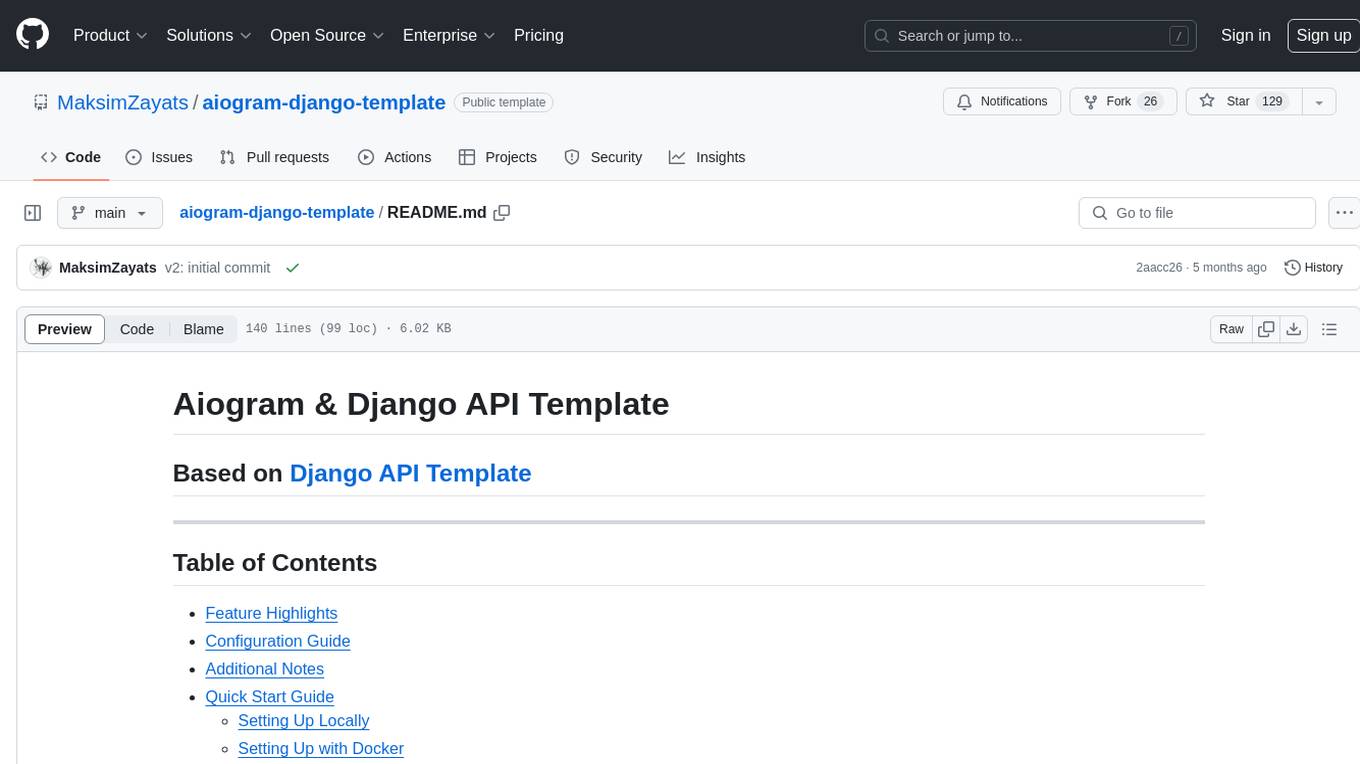
aiogram-django-template
Aiogram & Django API Template is a robust and secure Django template with advanced features like Docker integration, Celery for asynchronous tasks, Sentry for error tracking, Django Rest Framework for building APIs, and more. It provides scalability options, up-to-date dependencies, and integration with AWS S3 for storage. The template includes configuration guides for secrets, ports, performance tuning, application settings, CORS and CSRF settings, and database configuration. Security, scalability, and monitoring are emphasized for efficient Django API development.
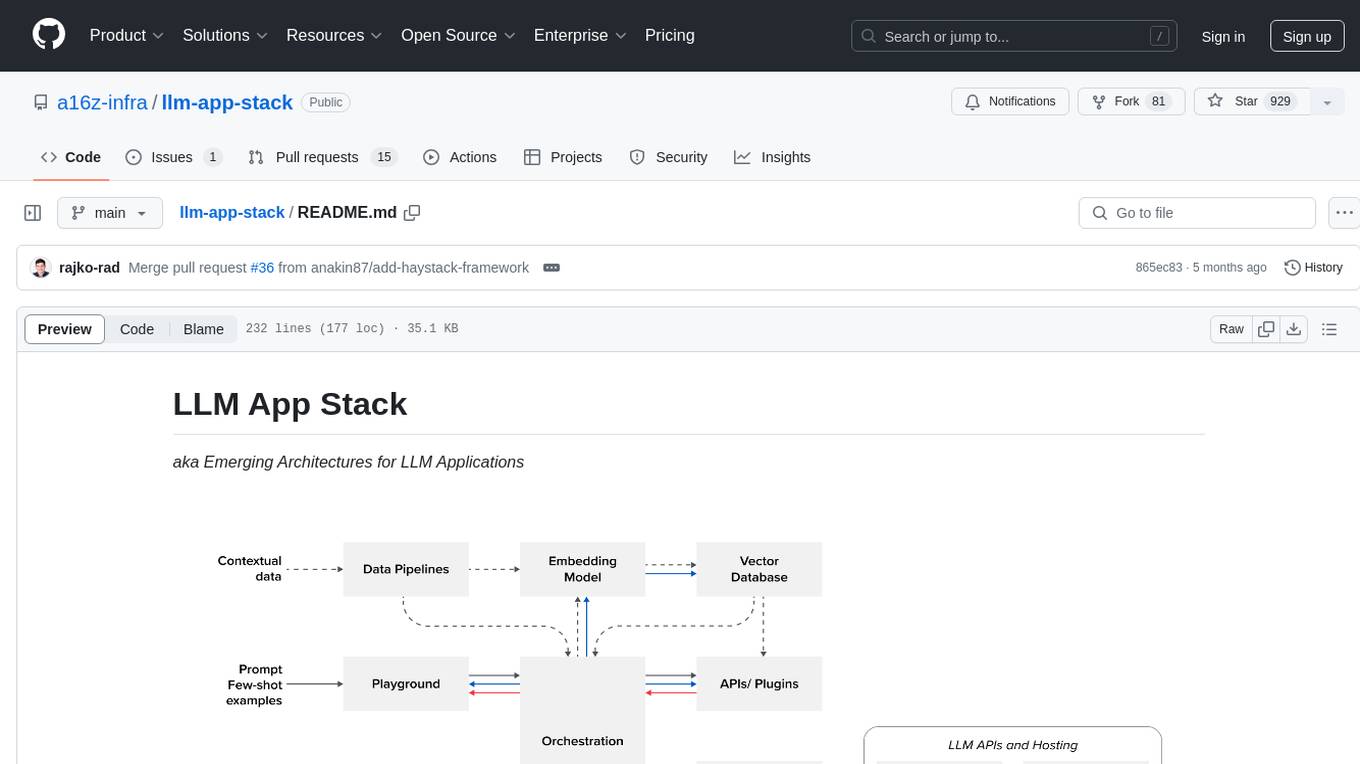
llm-app-stack
LLM App Stack, also known as Emerging Architectures for LLM Applications, is a comprehensive list of available tools, projects, and vendors at each layer of the LLM app stack. It covers various categories such as Data Pipelines, Embedding Models, Vector Databases, Playgrounds, Orchestrators, APIs/Plugins, LLM Caches, Logging/Monitoring/Eval, Validators, LLM APIs (proprietary and open source), App Hosting Platforms, Cloud Providers, and Opinionated Clouds. The repository aims to provide a detailed overview of tools and projects for building, deploying, and maintaining enterprise data solutions, AI models, and applications.
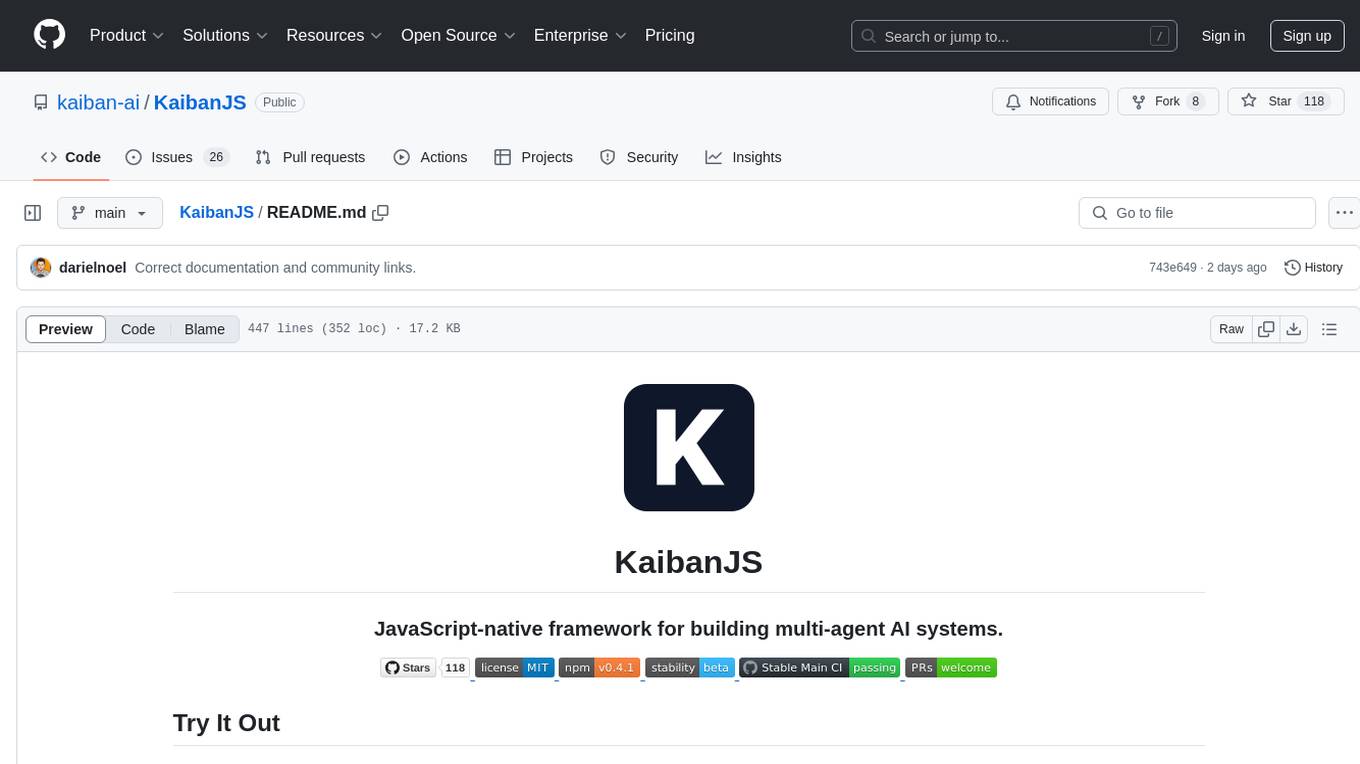
KaibanJS
KaibanJS is a JavaScript-native framework for building multi-agent AI systems. It enables users to create specialized AI agents with distinct roles and goals, manage tasks, and coordinate teams efficiently. The framework supports role-based agent design, tool integration, multiple LLMs support, robust state management, observability and monitoring features, and a real-time agentic Kanban board for visualizing AI workflows. KaibanJS aims to empower JavaScript developers with a user-friendly AI framework tailored for the JavaScript ecosystem, bridging the gap in the AI race for non-Python developers.
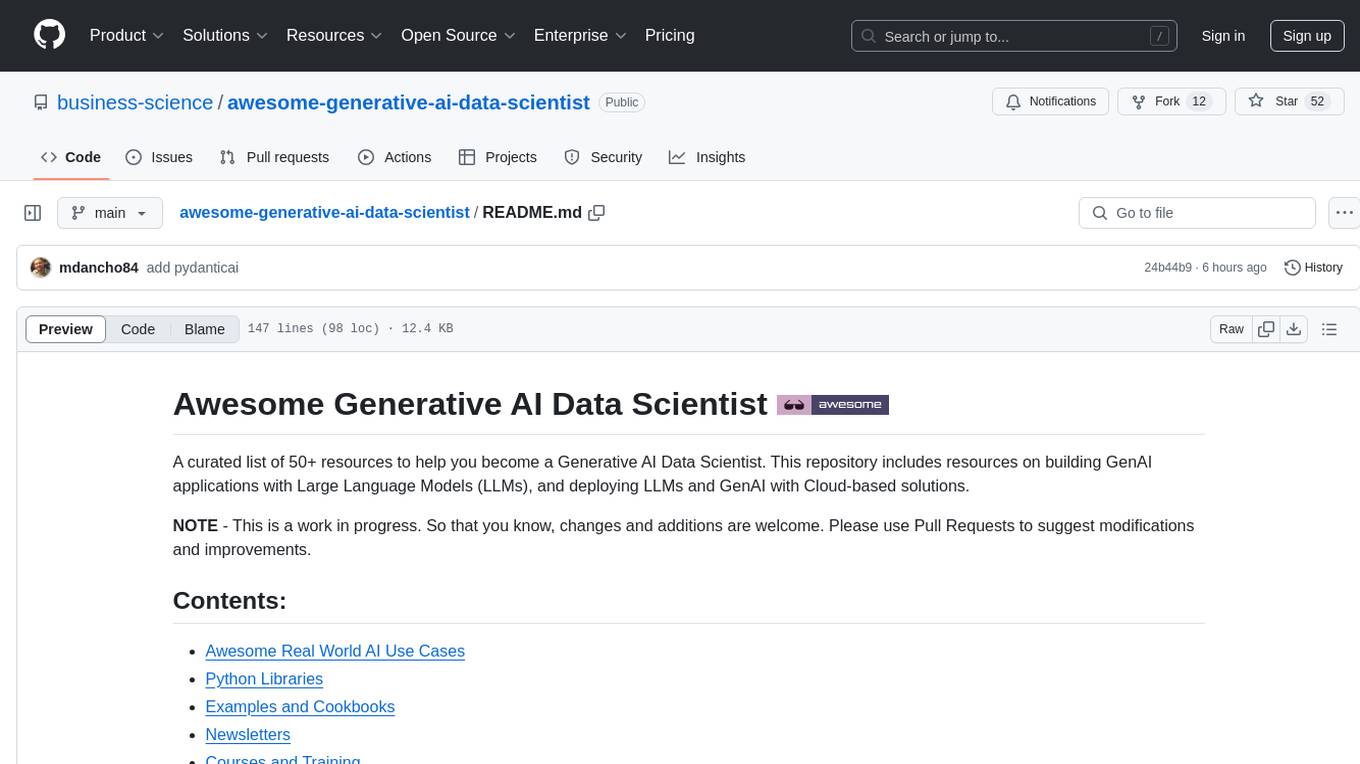
awesome-generative-ai-data-scientist
A curated list of 50+ resources to help you become a Generative AI Data Scientist. This repository includes resources on building GenAI applications with Large Language Models (LLMs), and deploying LLMs and GenAI with Cloud-based solutions.

ray
Ray is a unified framework for scaling AI and Python applications. It consists of a core distributed runtime and a set of AI libraries for simplifying ML compute, including Data, Train, Tune, RLlib, and Serve. Ray runs on any machine, cluster, cloud provider, and Kubernetes, and features a growing ecosystem of community integrations. With Ray, you can seamlessly scale the same code from a laptop to a cluster, making it easy to meet the compute-intensive demands of modern ML workloads.

azure-search-openai-javascript
This sample demonstrates a few approaches for creating ChatGPT-like experiences over your own data using the Retrieval Augmented Generation pattern. It uses Azure OpenAI Service to access the ChatGPT model (gpt-35-turbo), and Azure AI Search for data indexing and retrieval.
20 - OpenAI Gpts
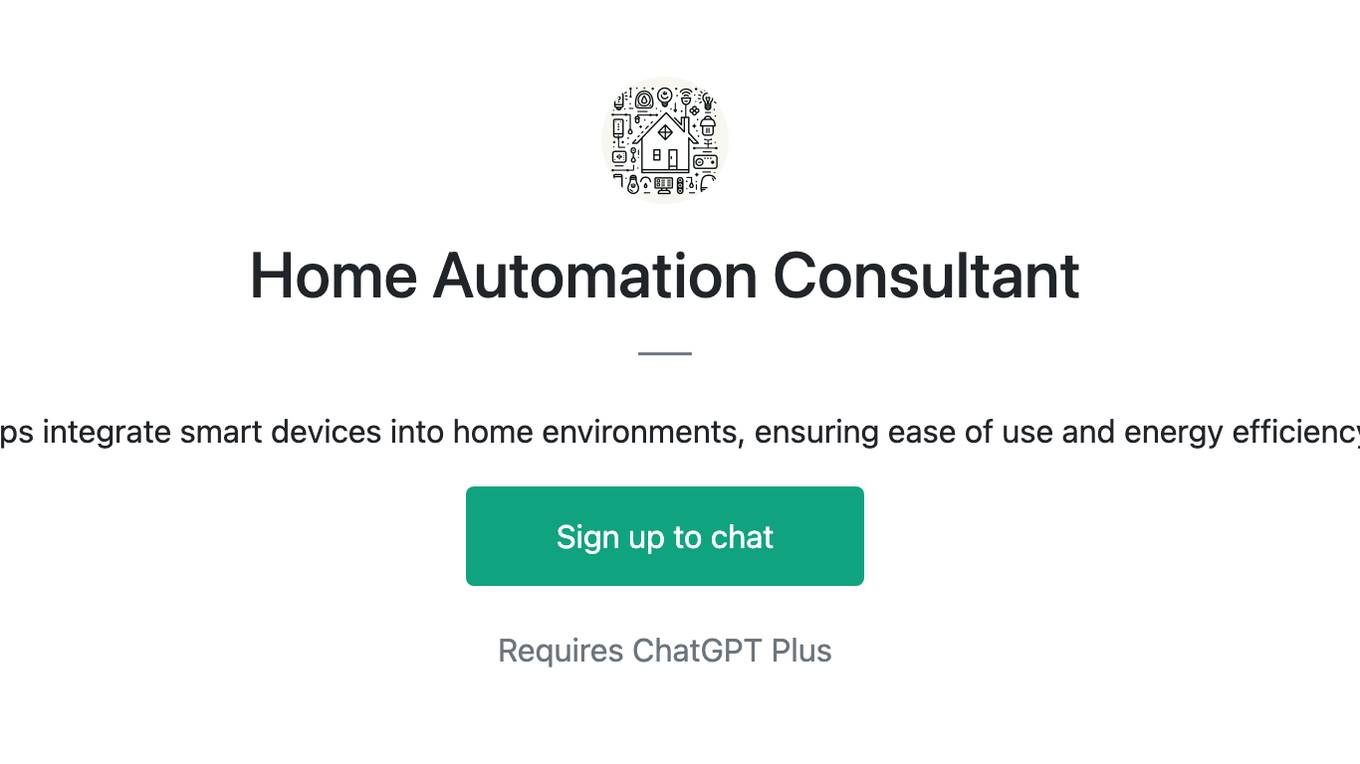
Home Automation Consultant
Helps integrate smart devices into home environments, ensuring ease of use and energy efficiency.

PósCiênciasAmbientaisBR
Especialista em dados de pós-graduação em Ciências Ambientais do Brasil.
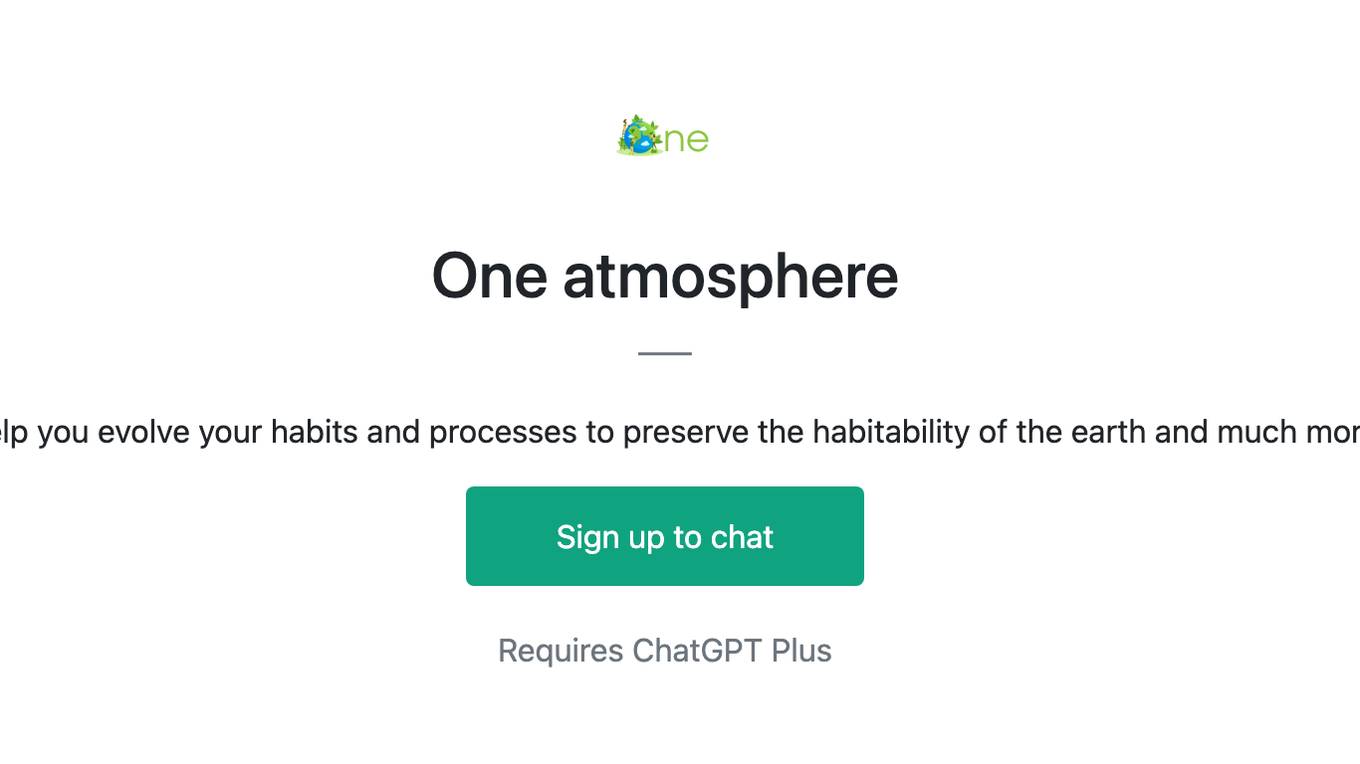
One atmosphere
I help you evolve your habits and processes to preserve the habitability of the earth and much more

RegenAgGPT
Regenerative agriculture expert diving into carbon sequestration and soil health.

🌱 EcoFarm Oracle 🚜
Your go-to AI for sustainable farming! Offers guidance on eco-friendly practices, crop rotation, soil health, and water conservation. 🌲💧

Oceanography GPT
I embody the spirit of the seas, ask me anything about the physical and biological properties and phenomena of the seas

Gaia Guardian
Assists in planning ecosystem restoration with a focus on biodiversity and local conditions.

Endangered Species Protector
Assists conservationists in protecting endangered species by analyzing habitat data and suggesting conservation strategies.
